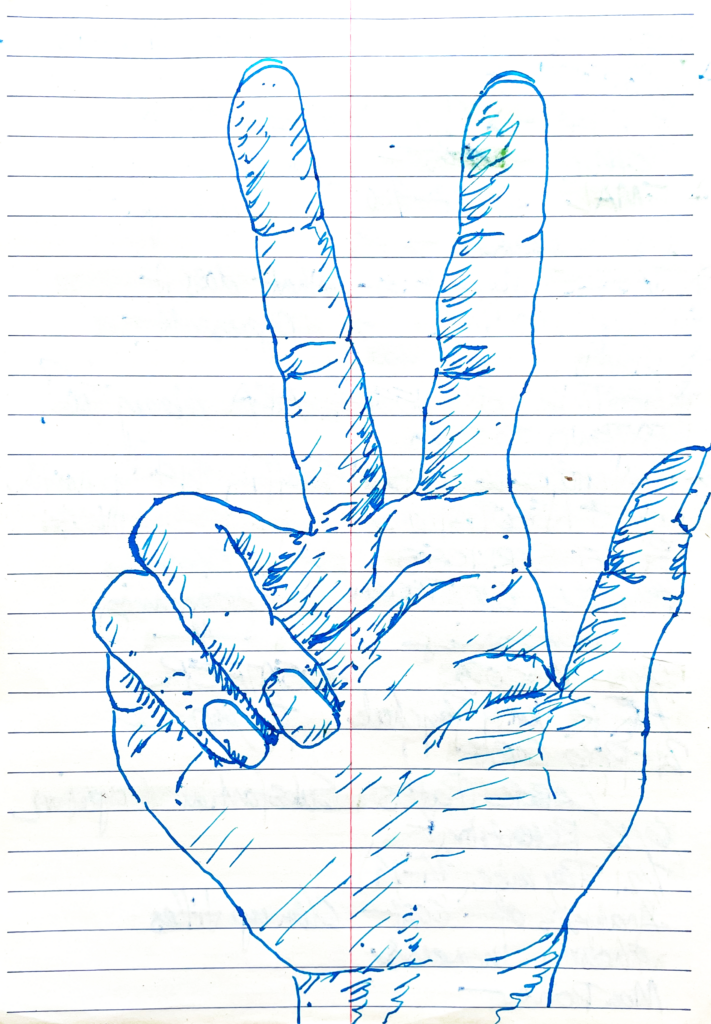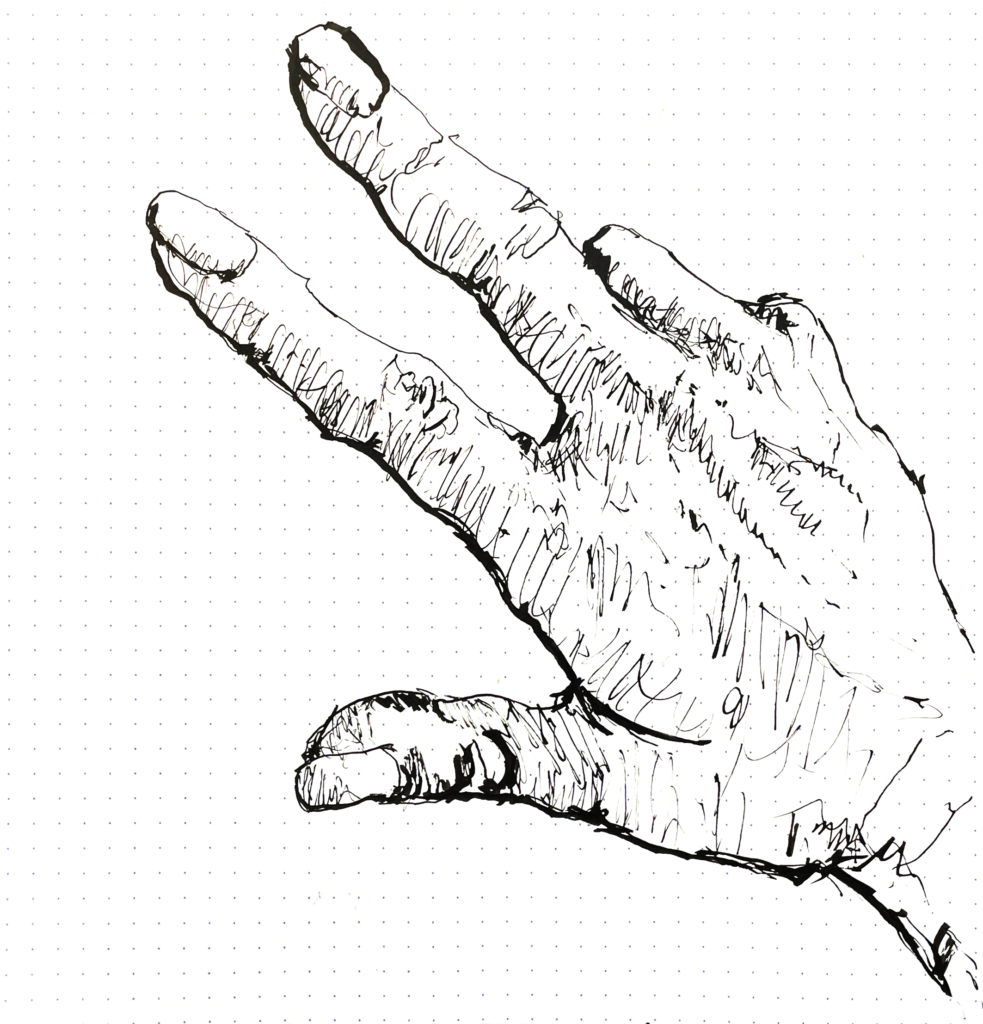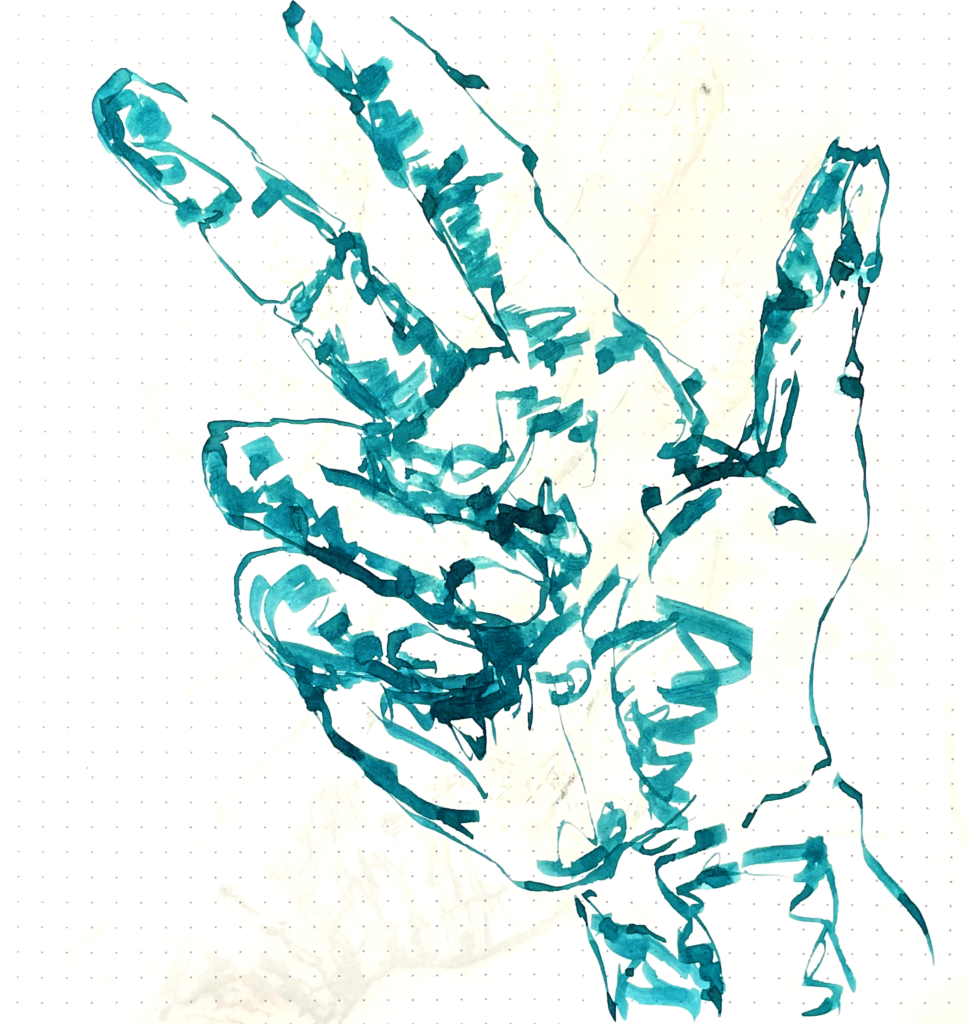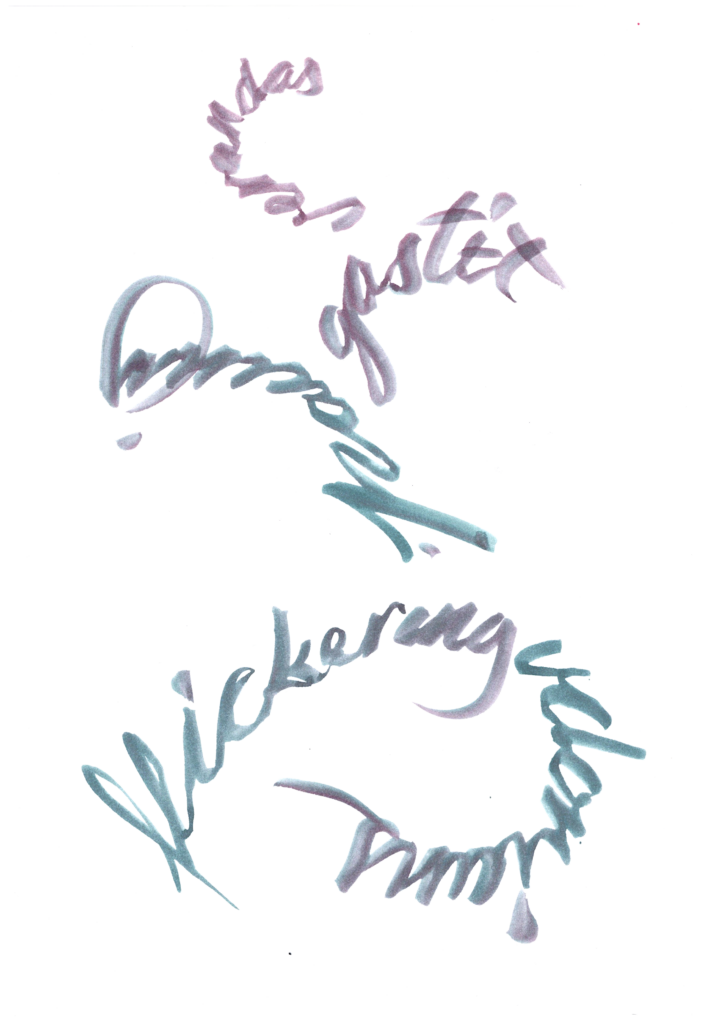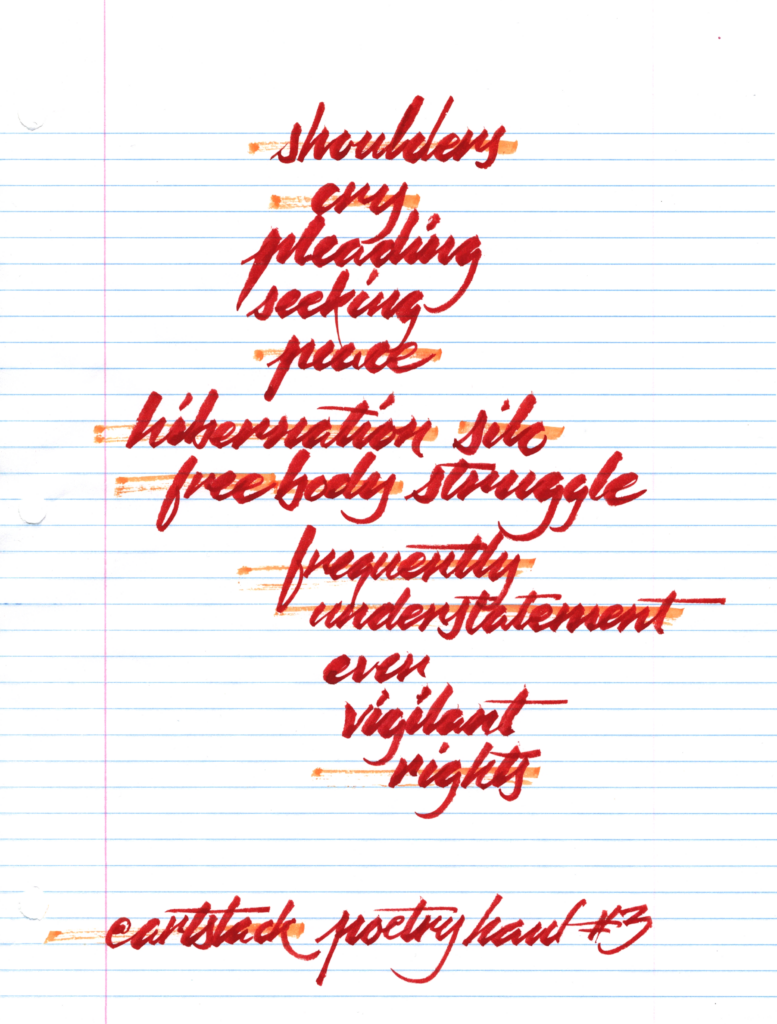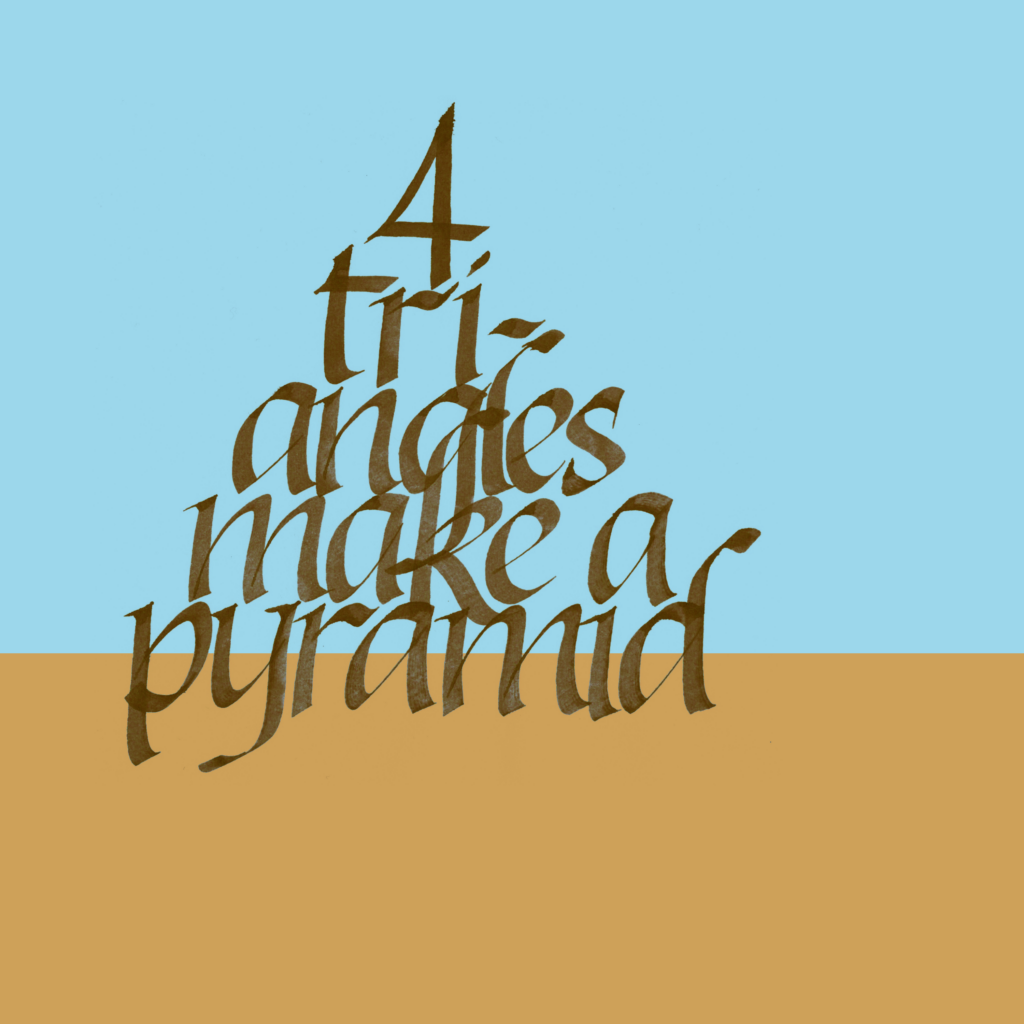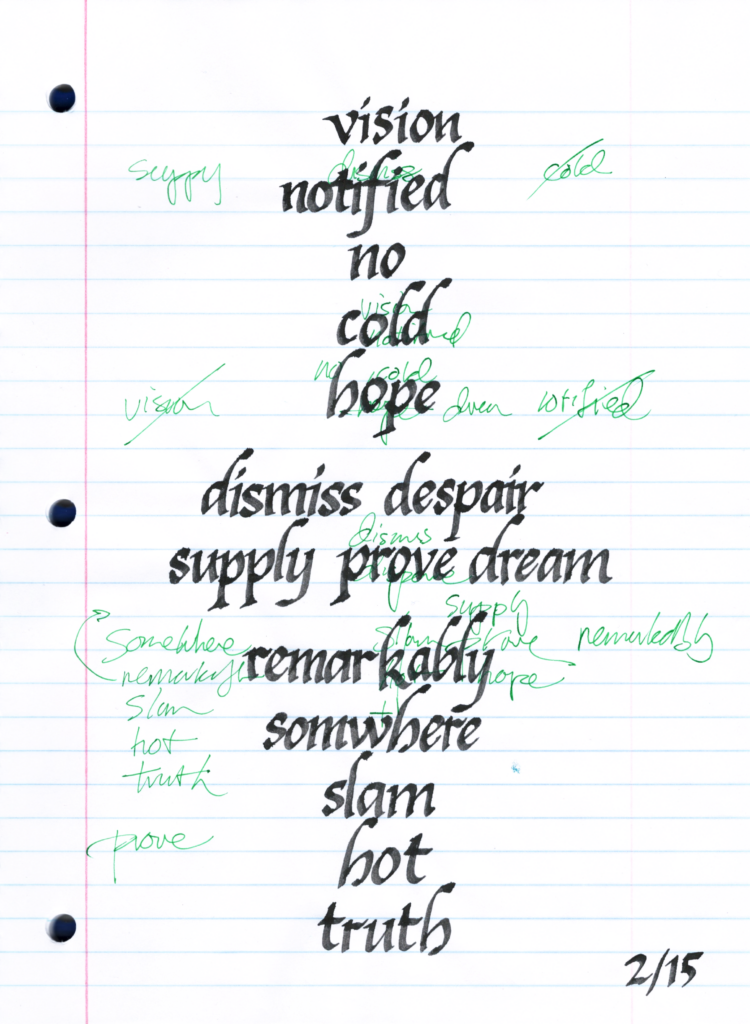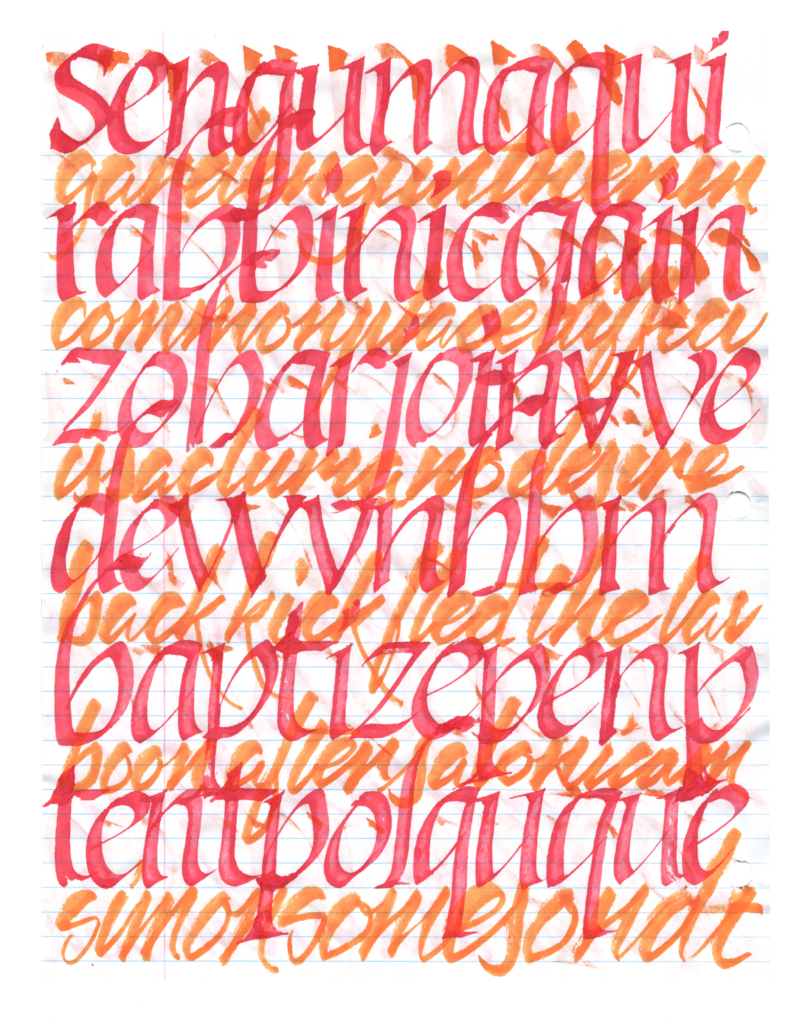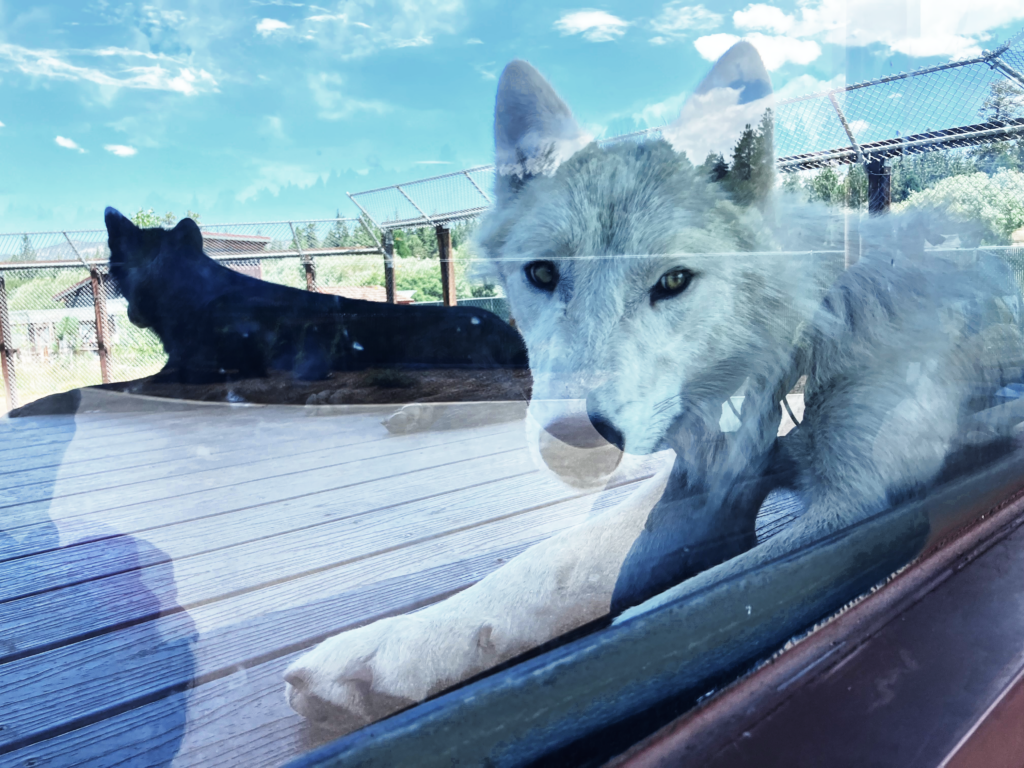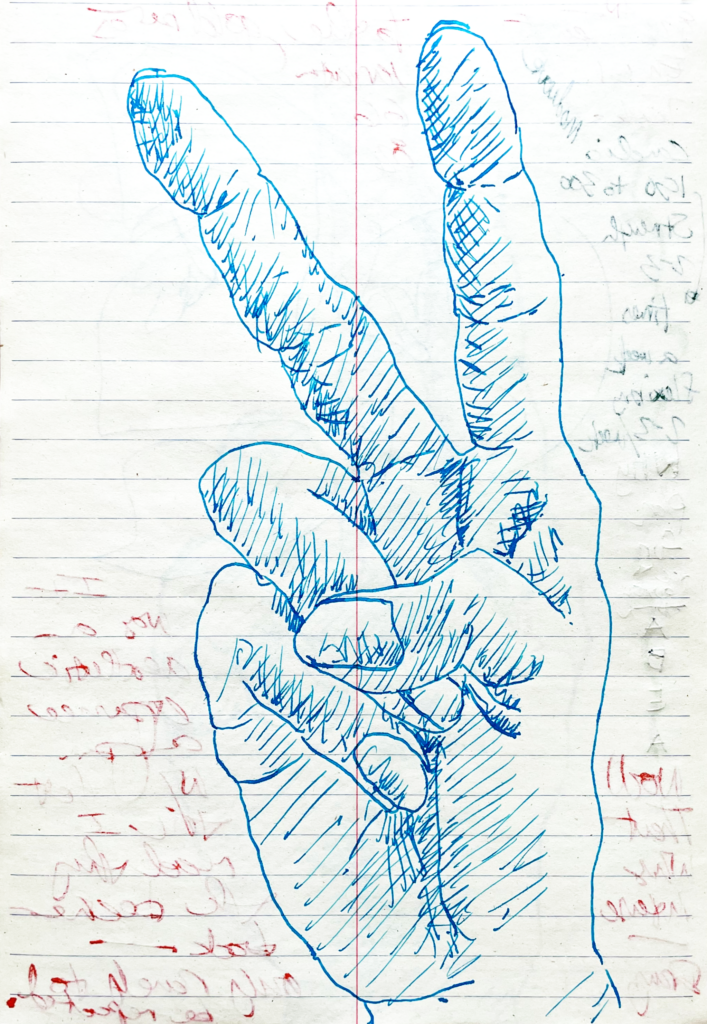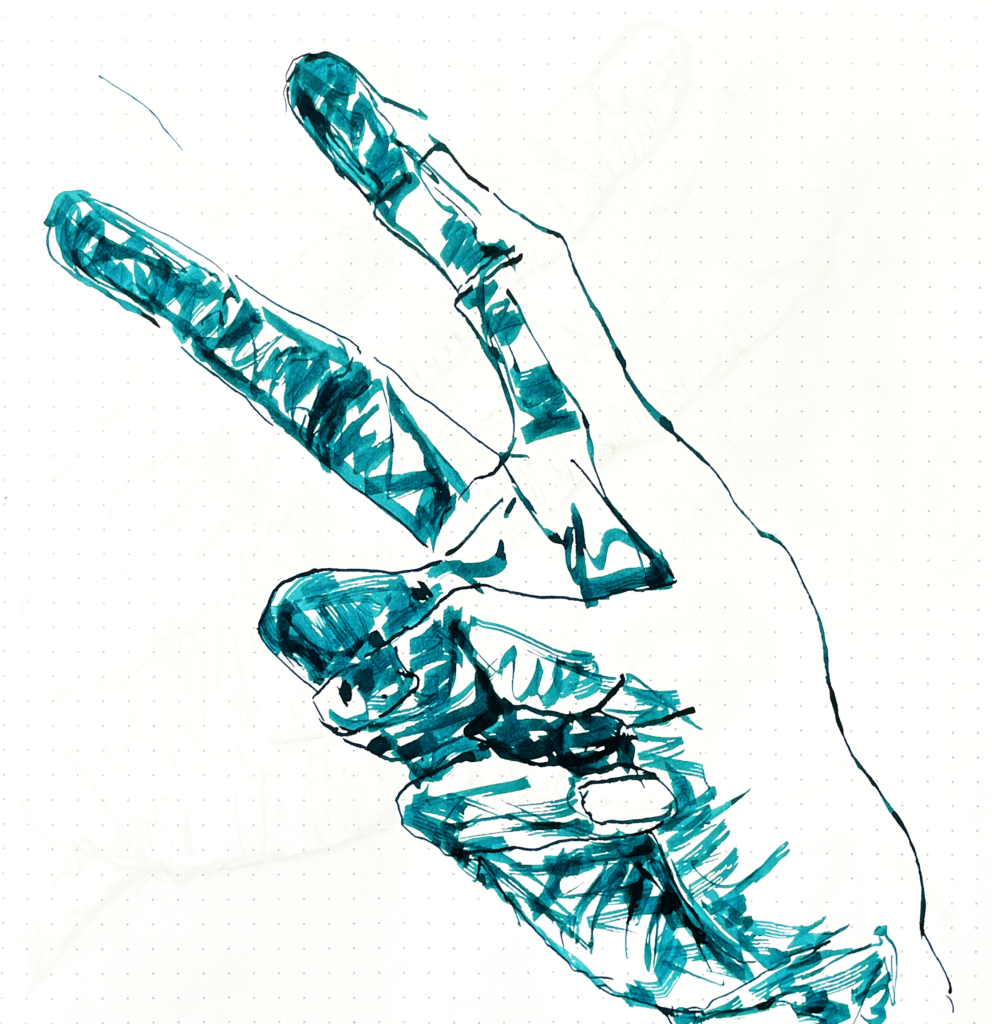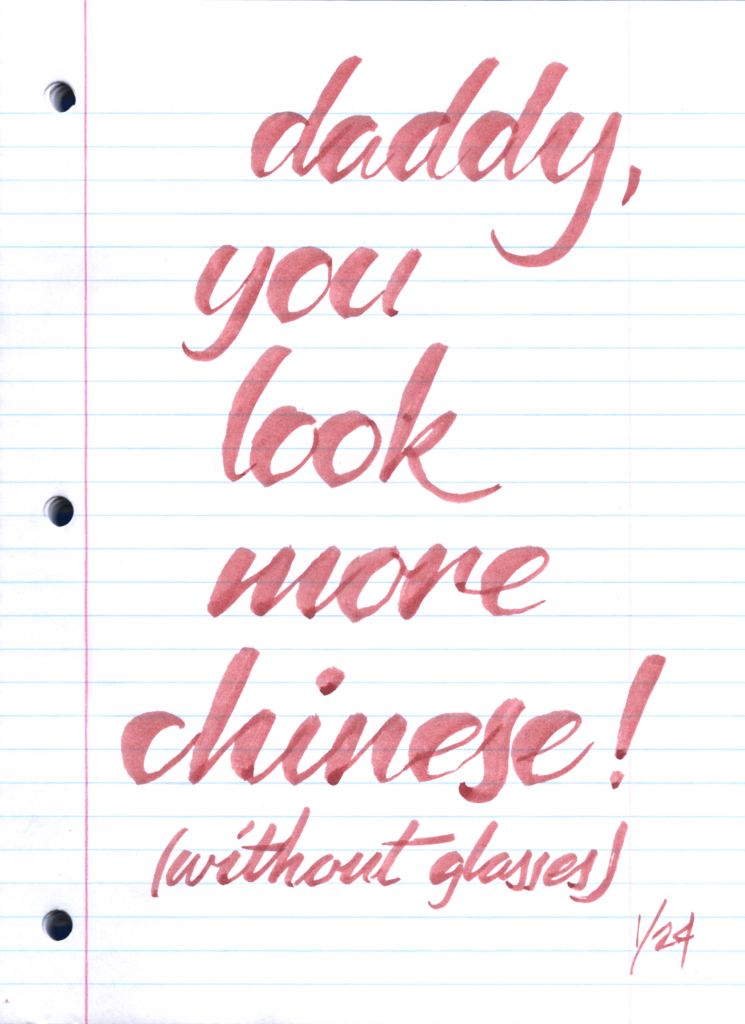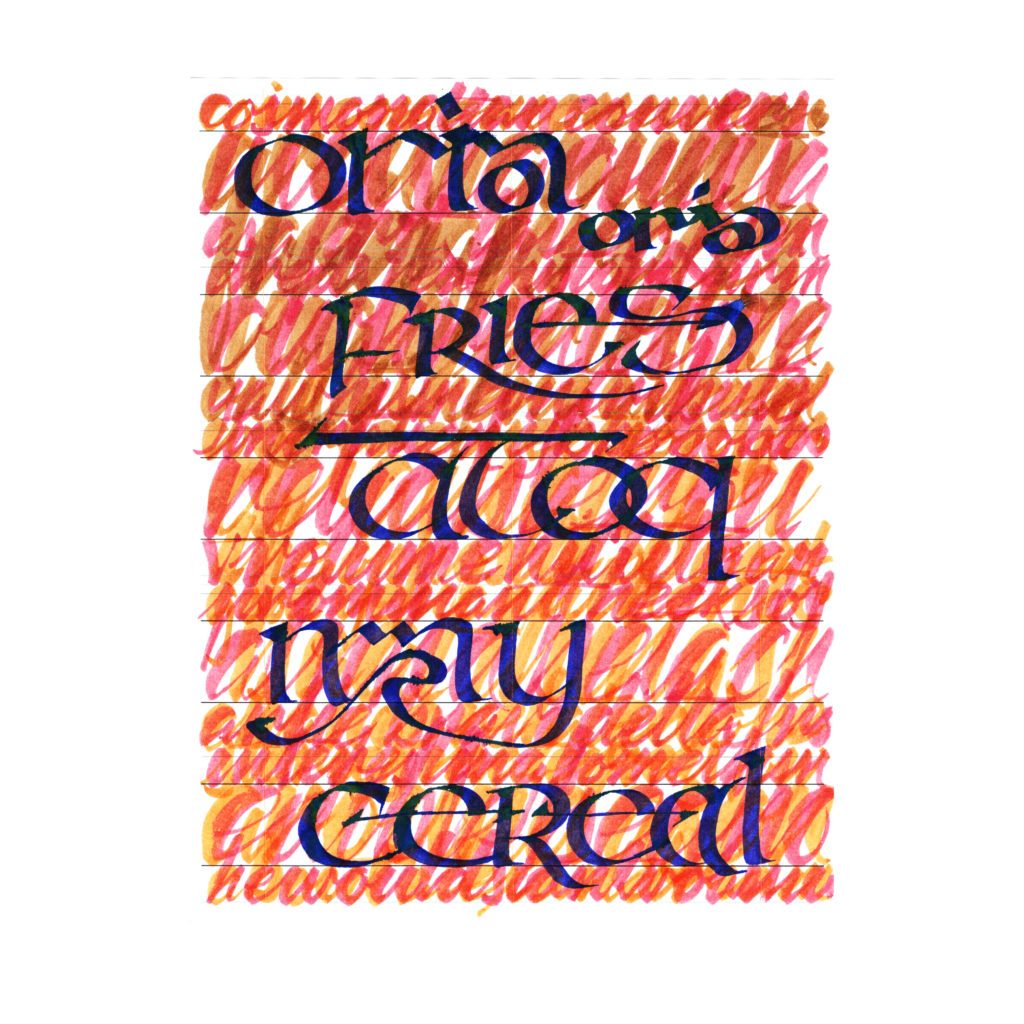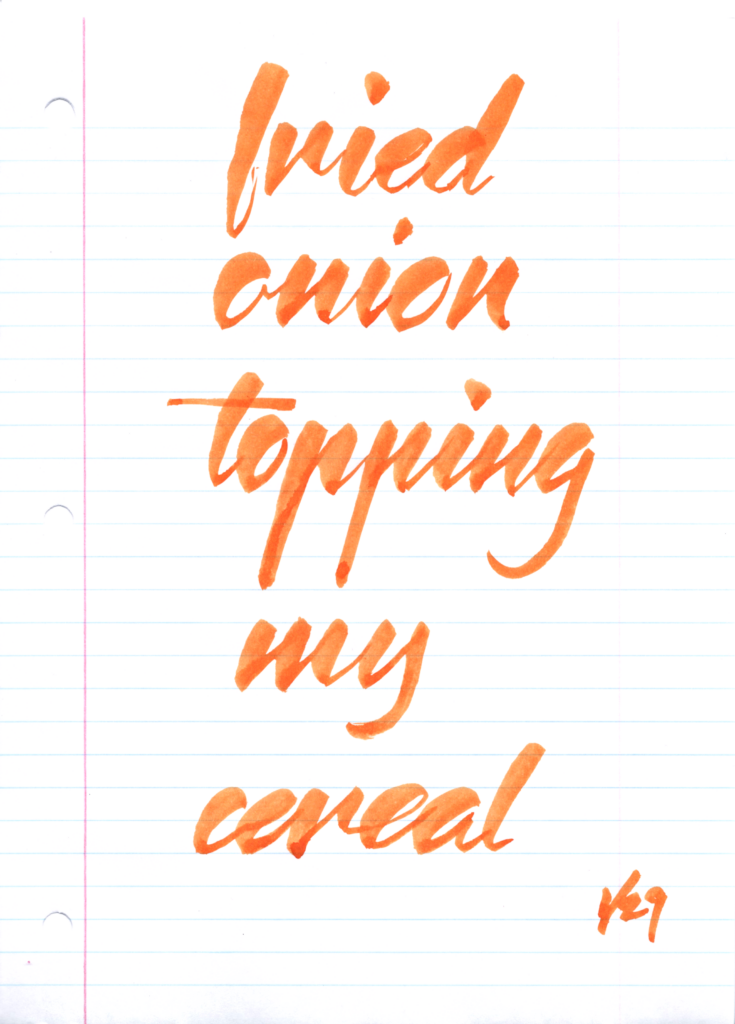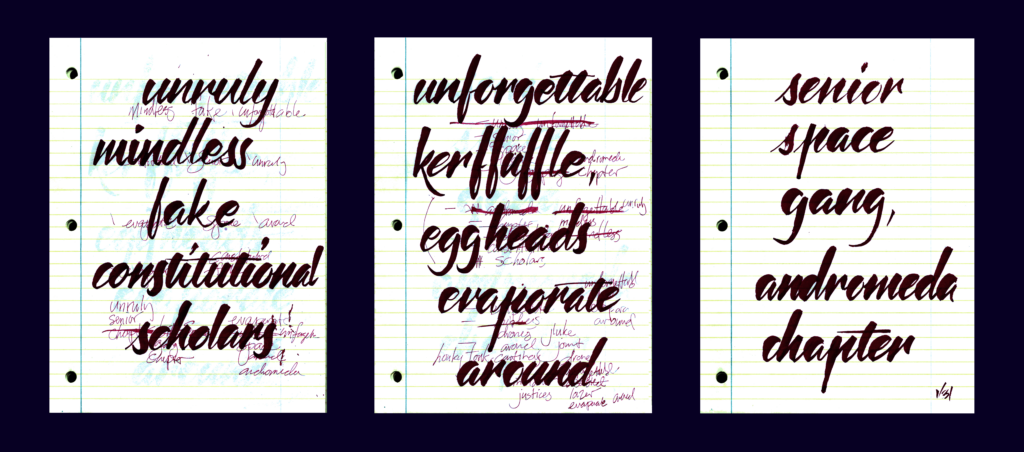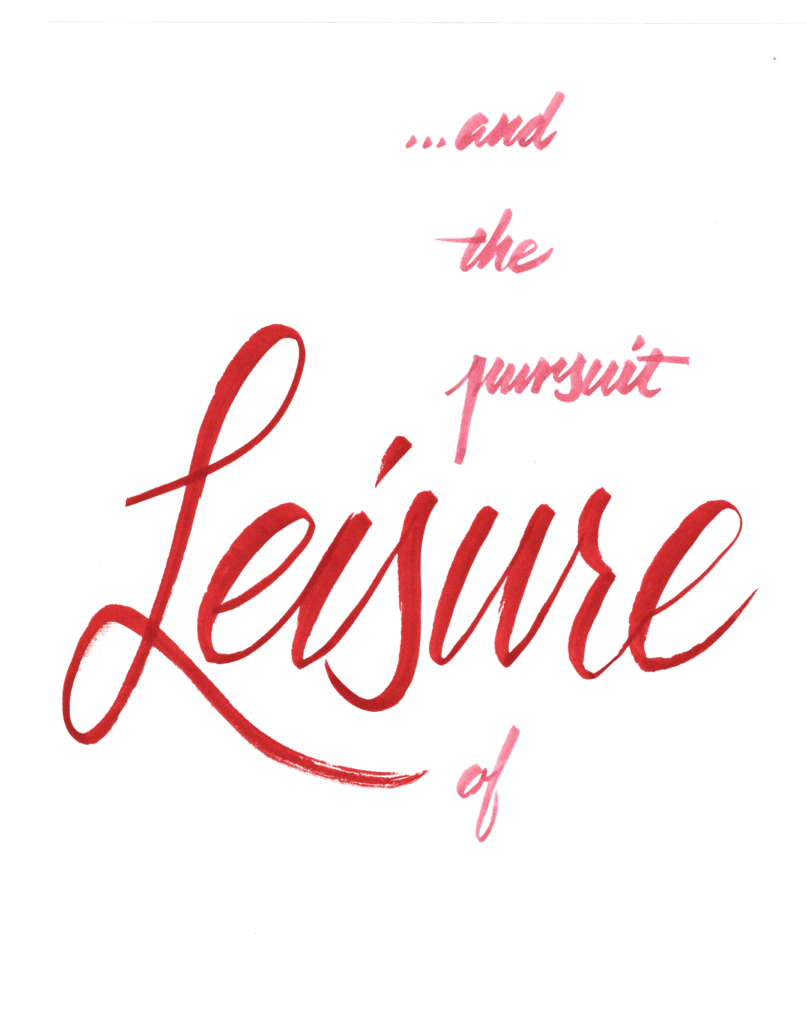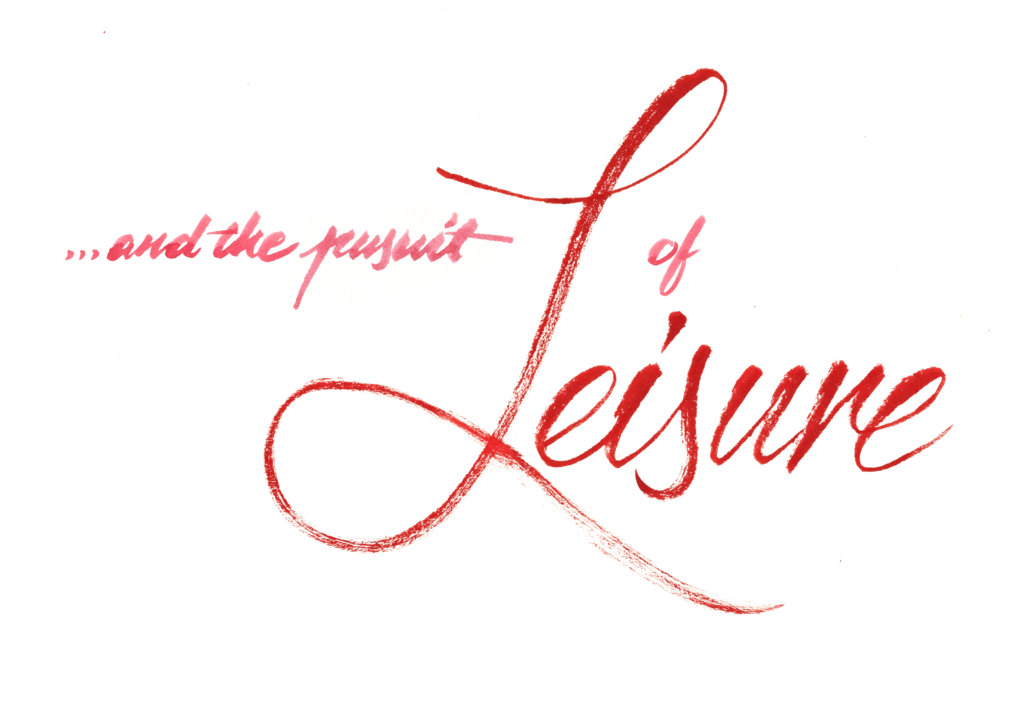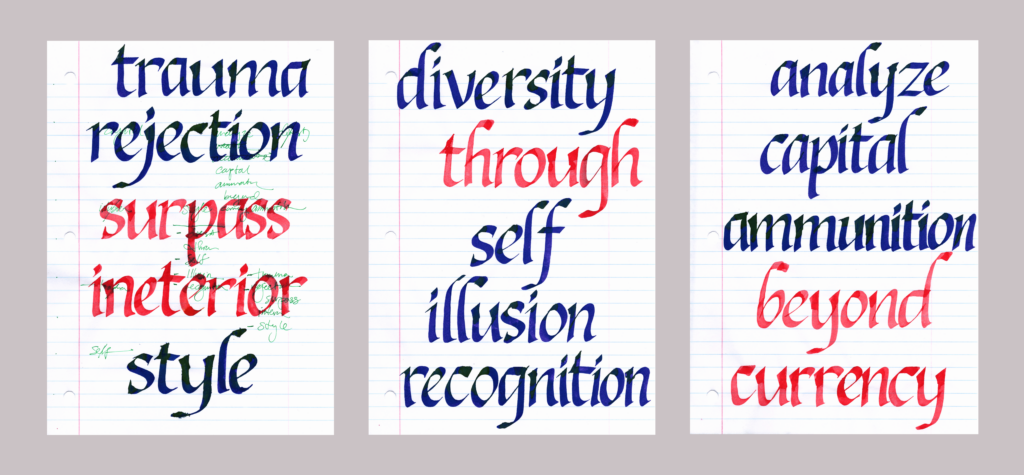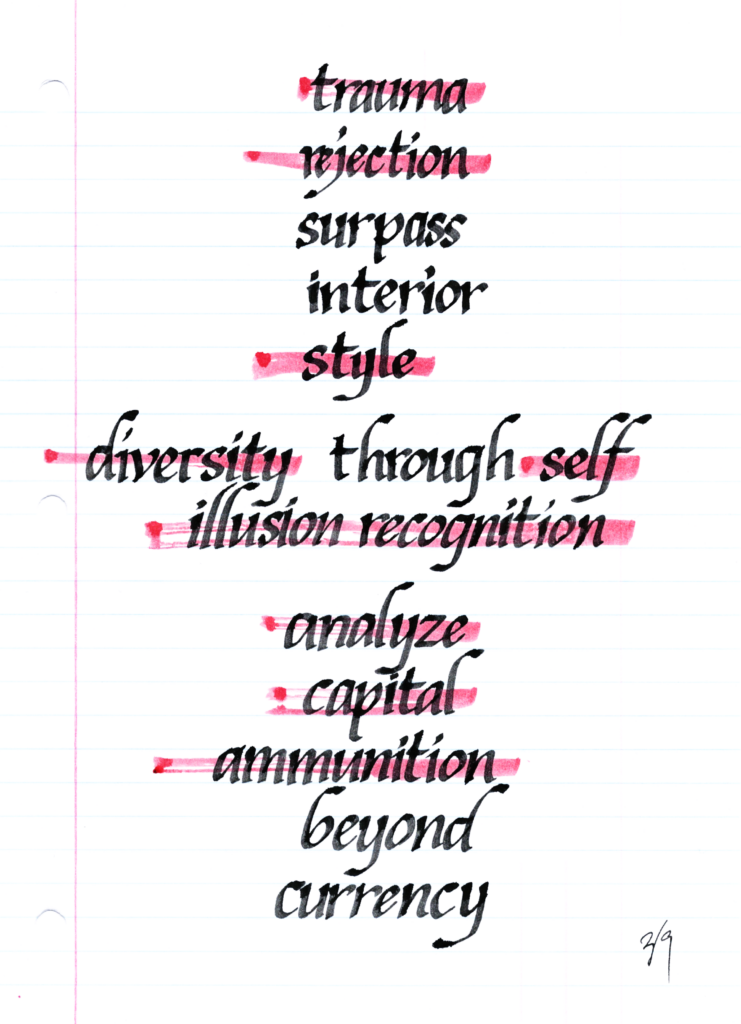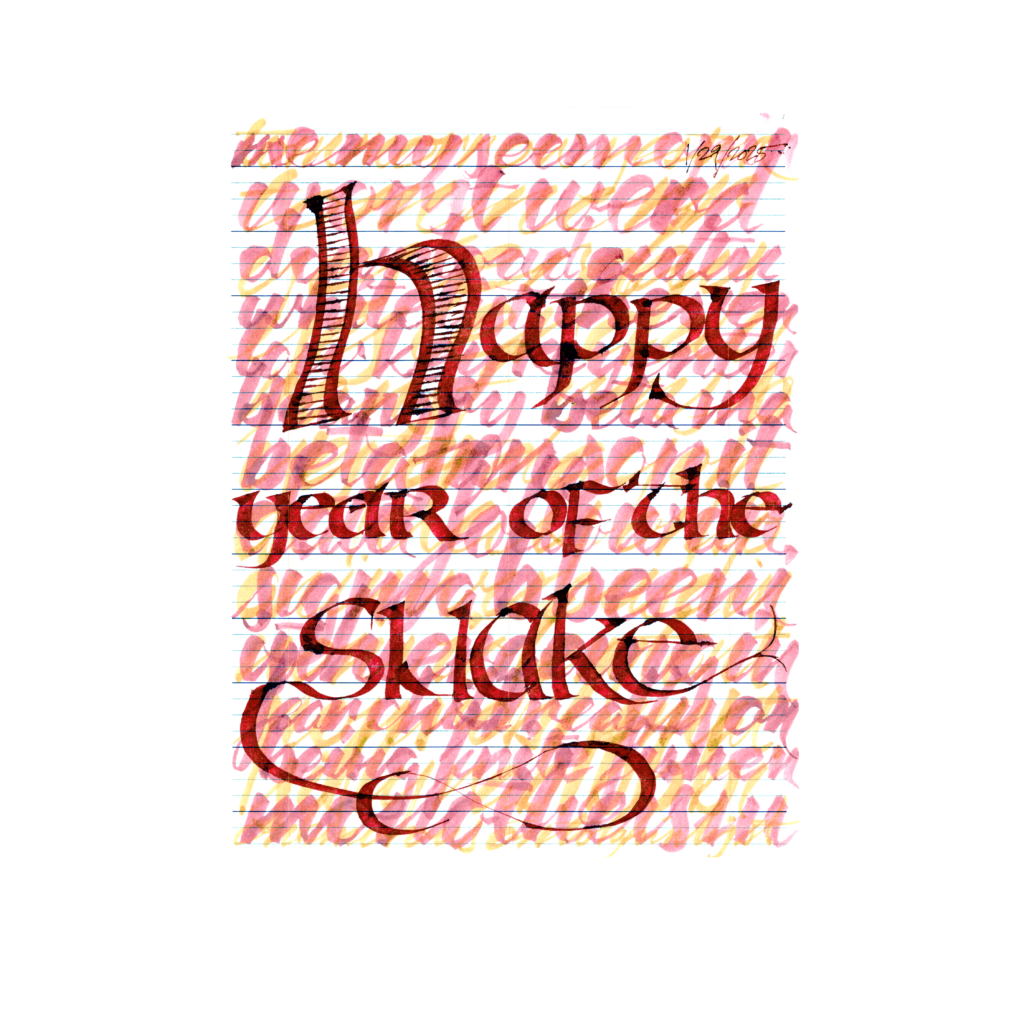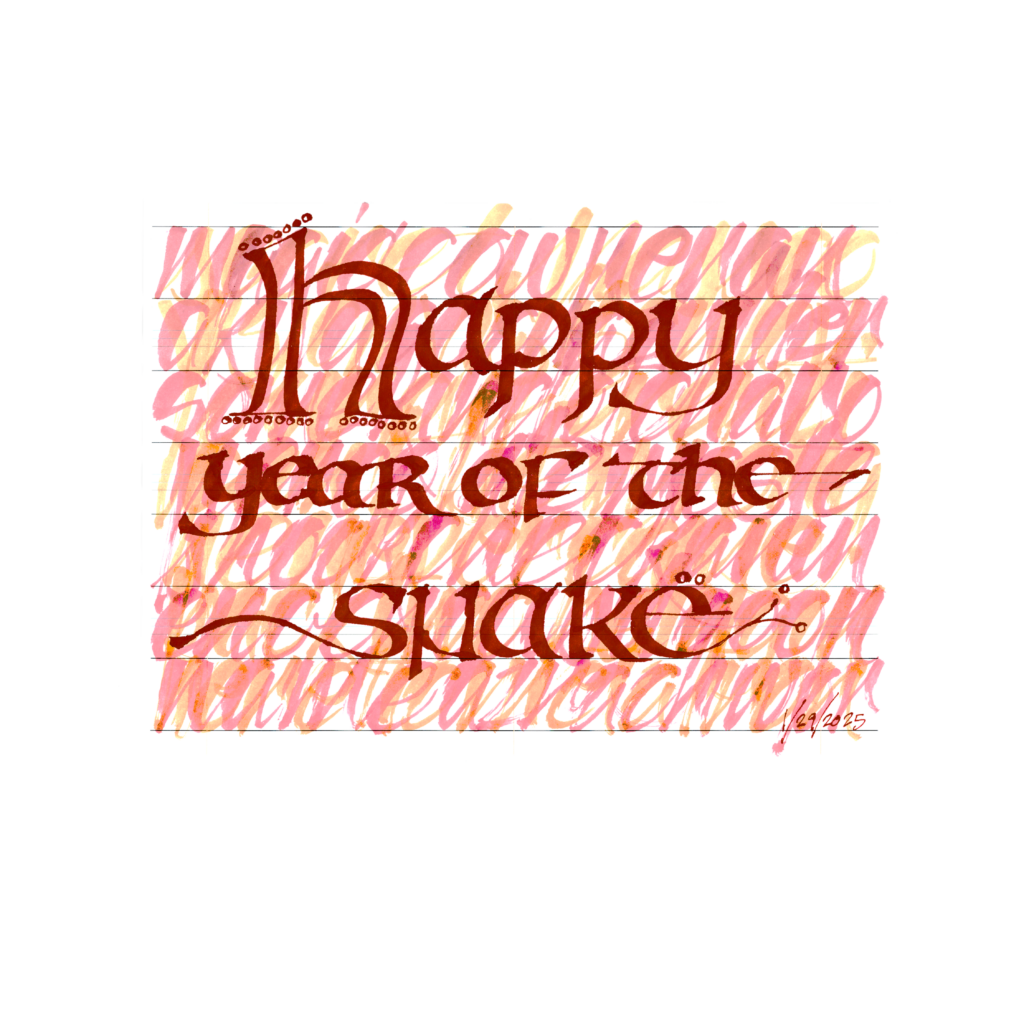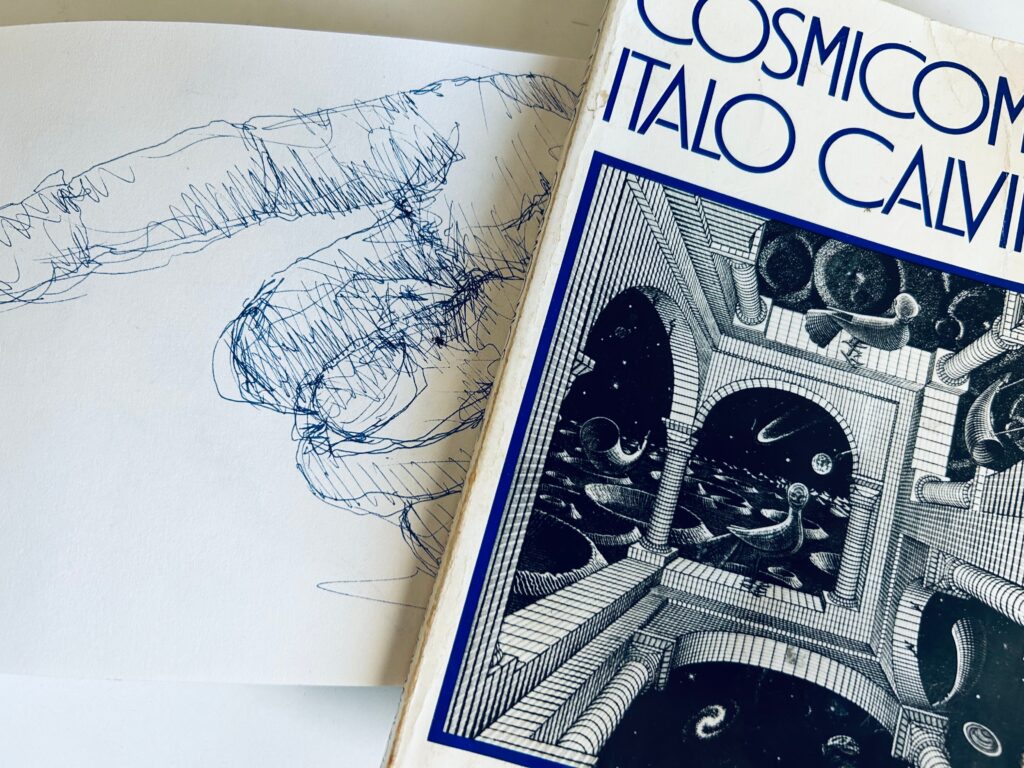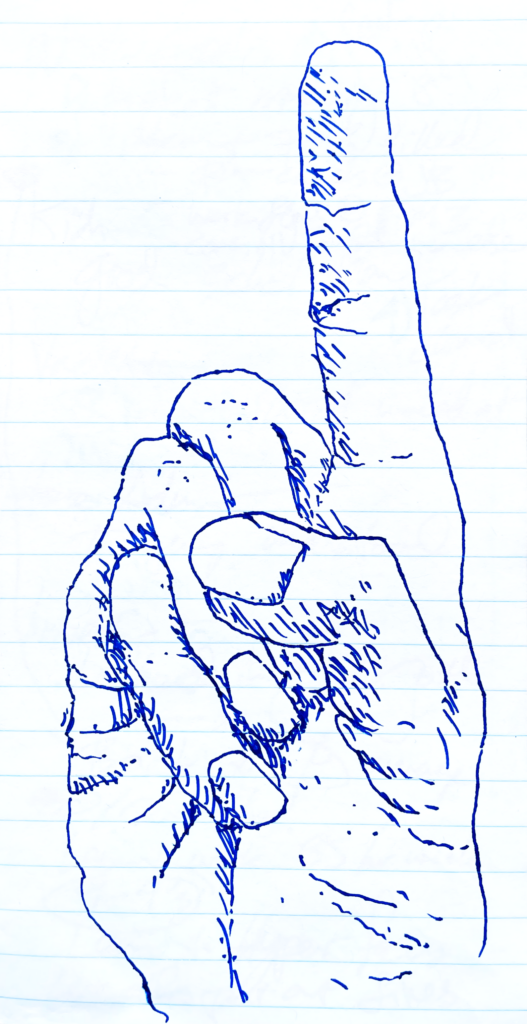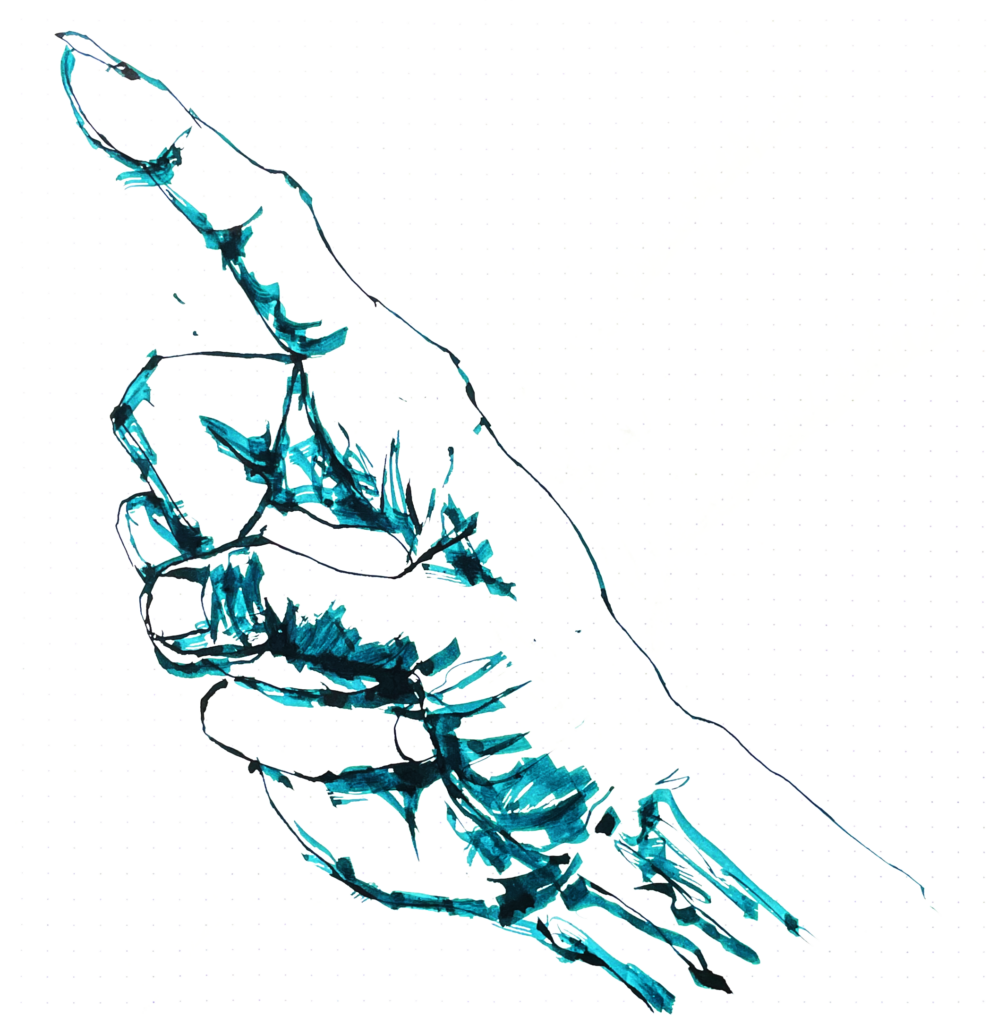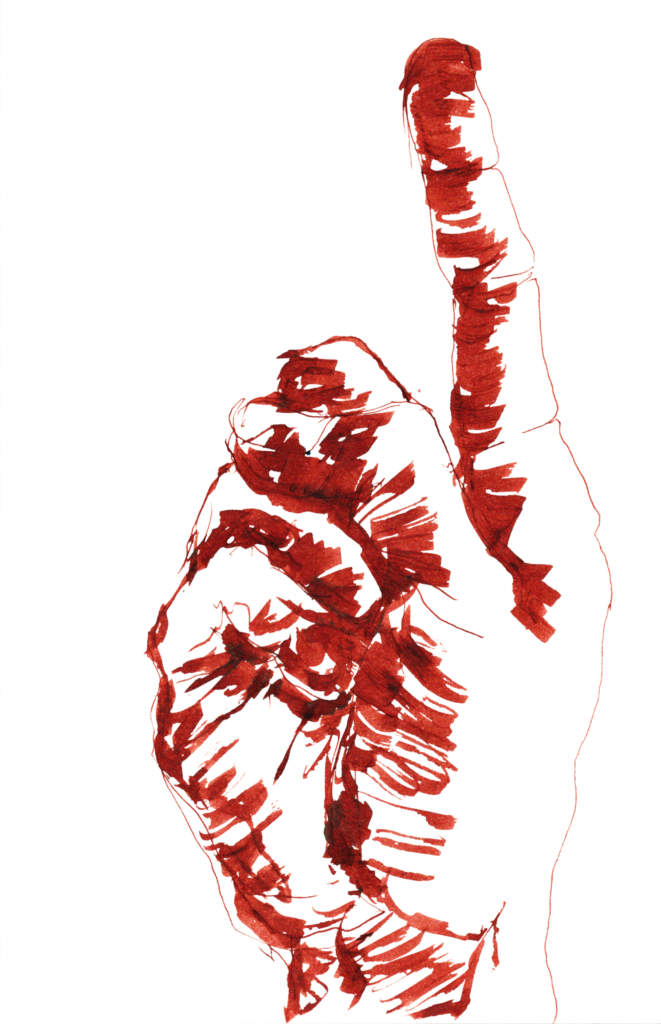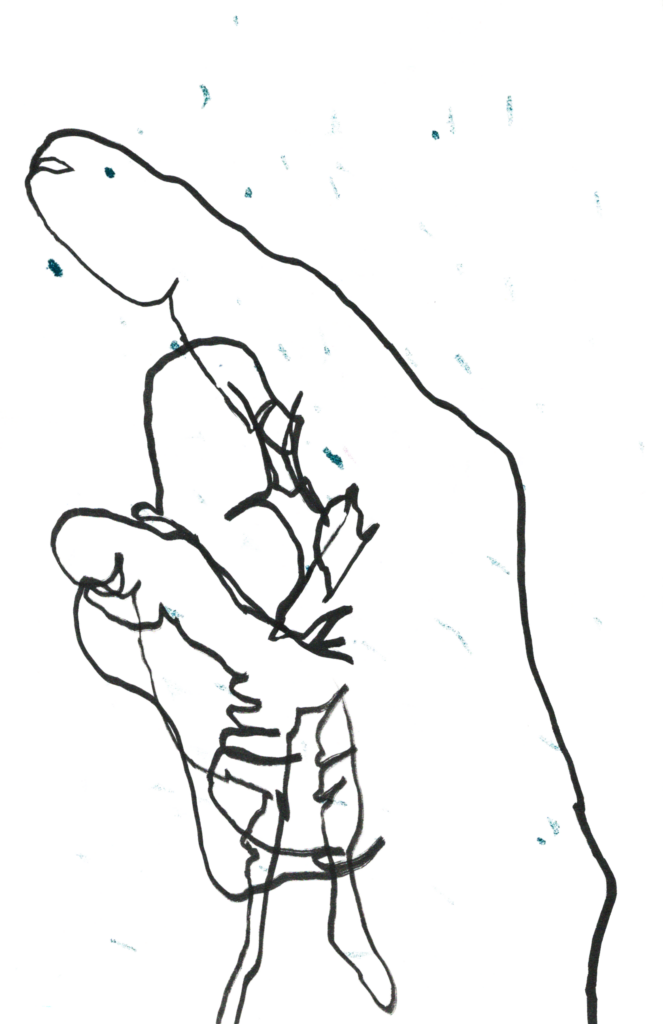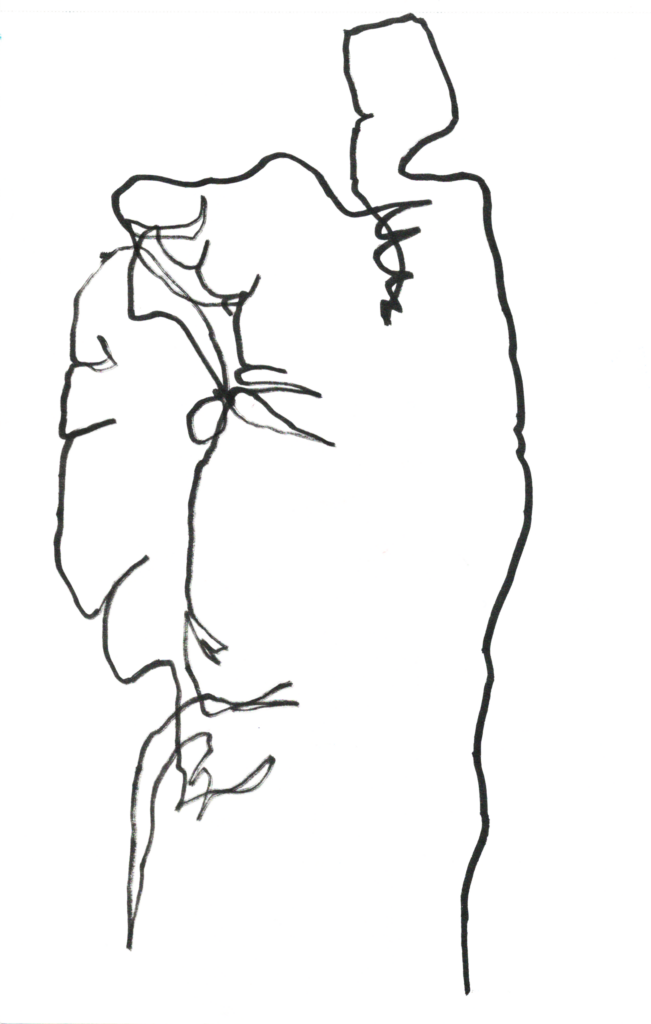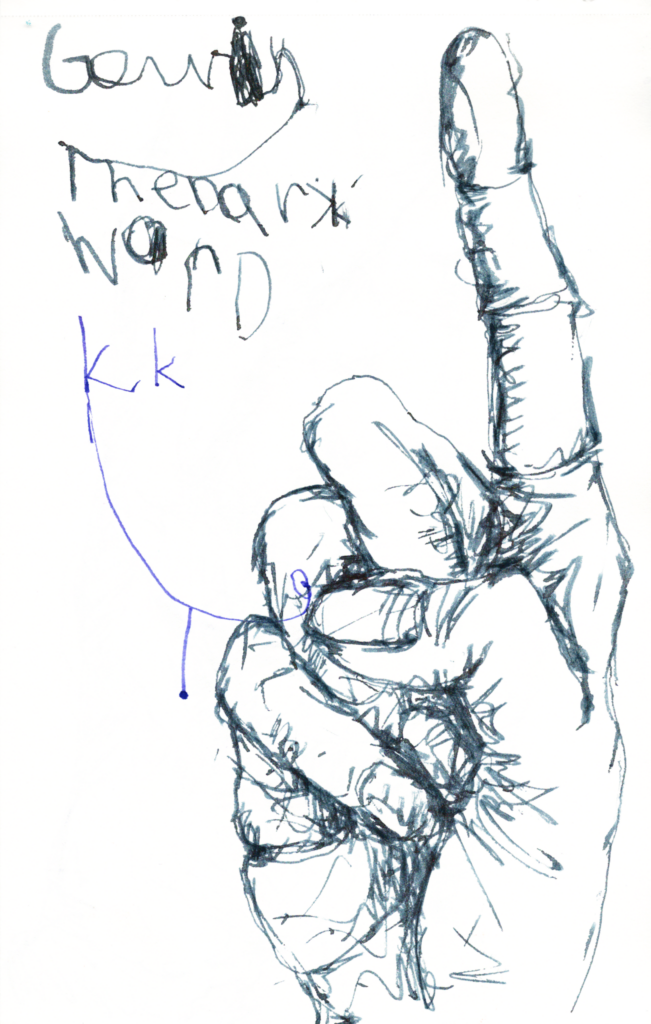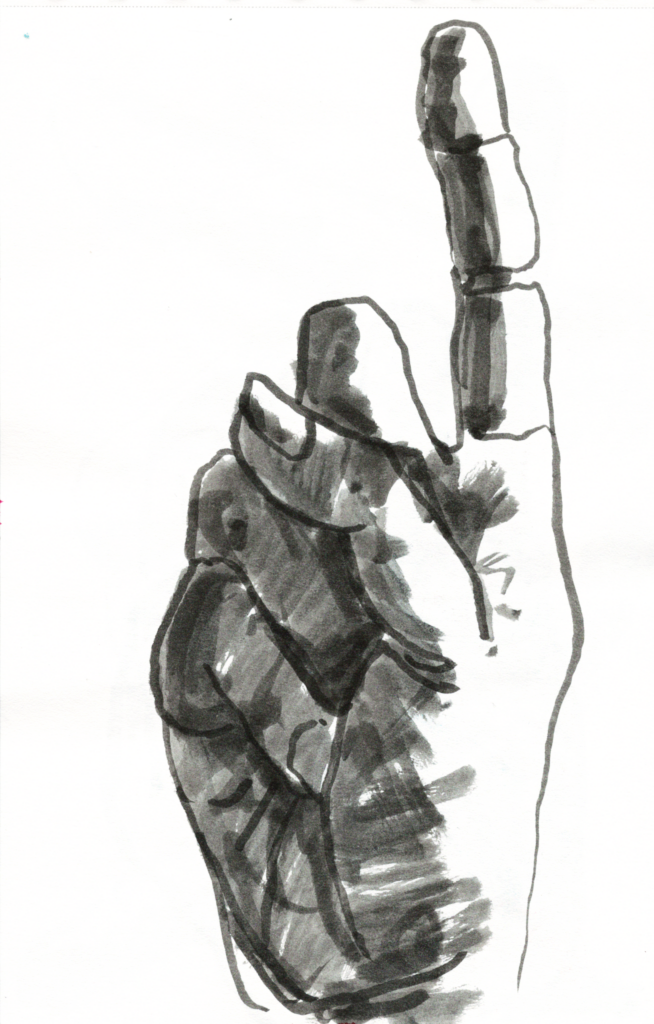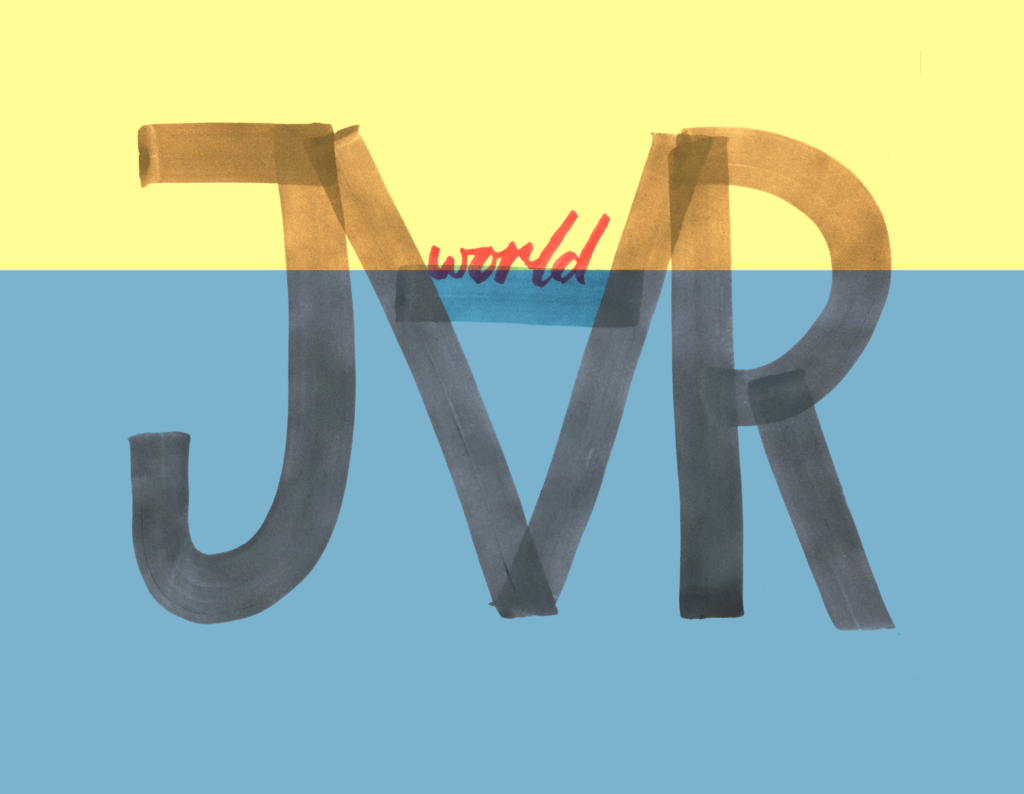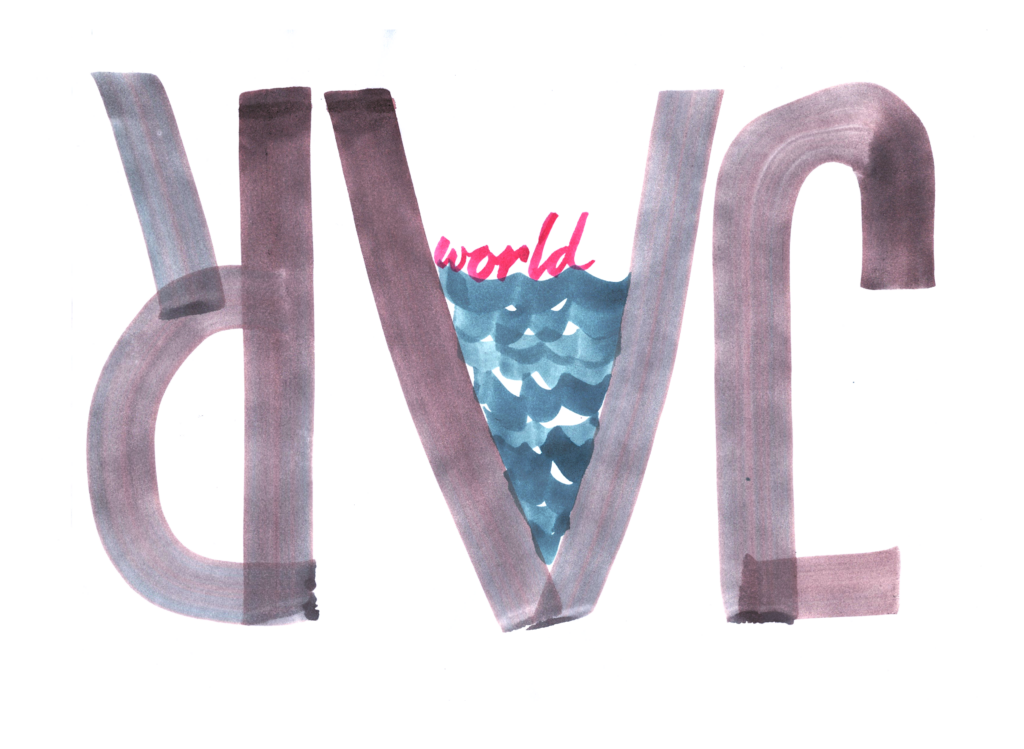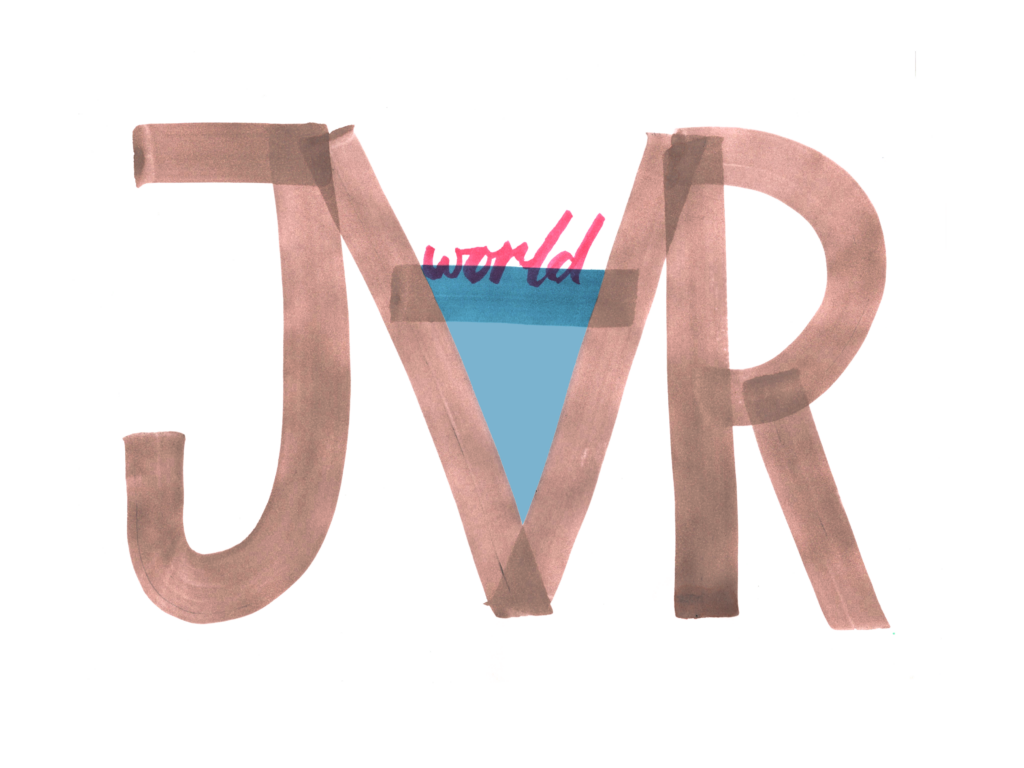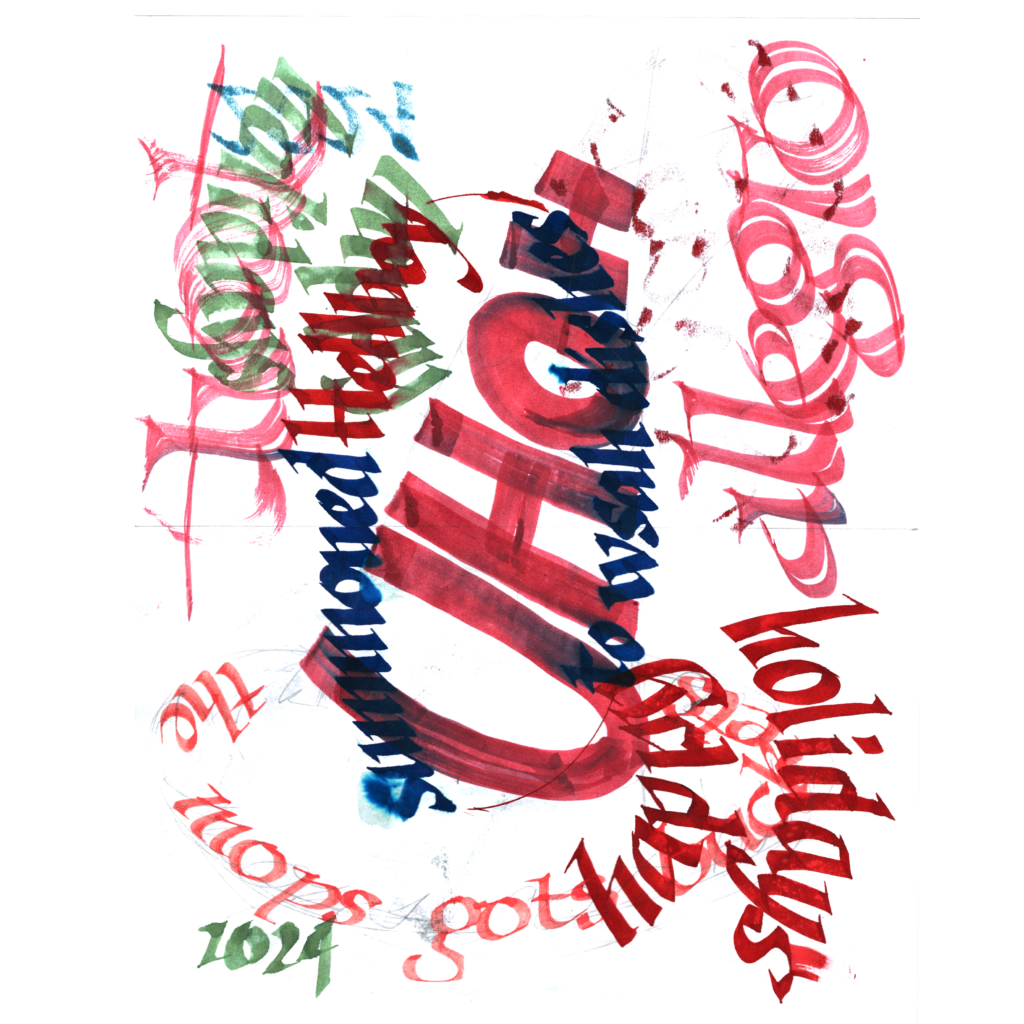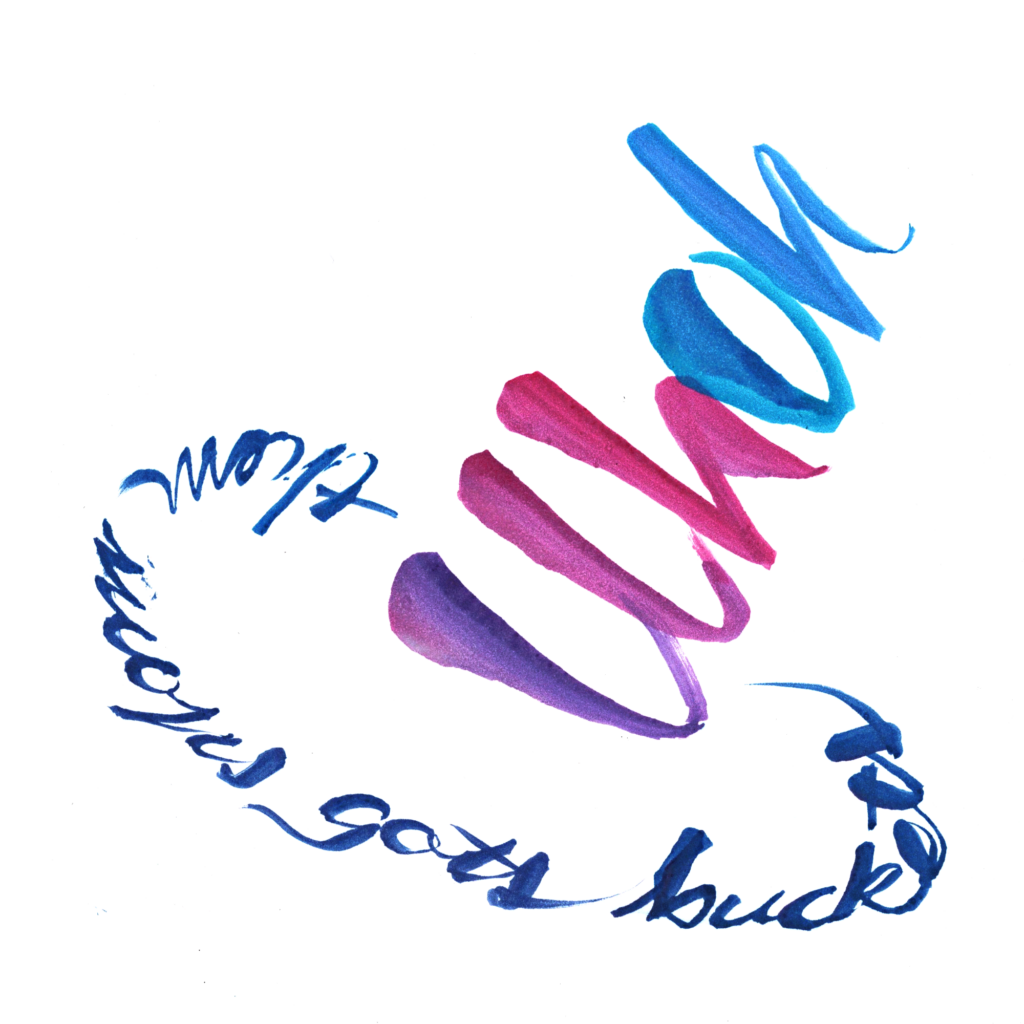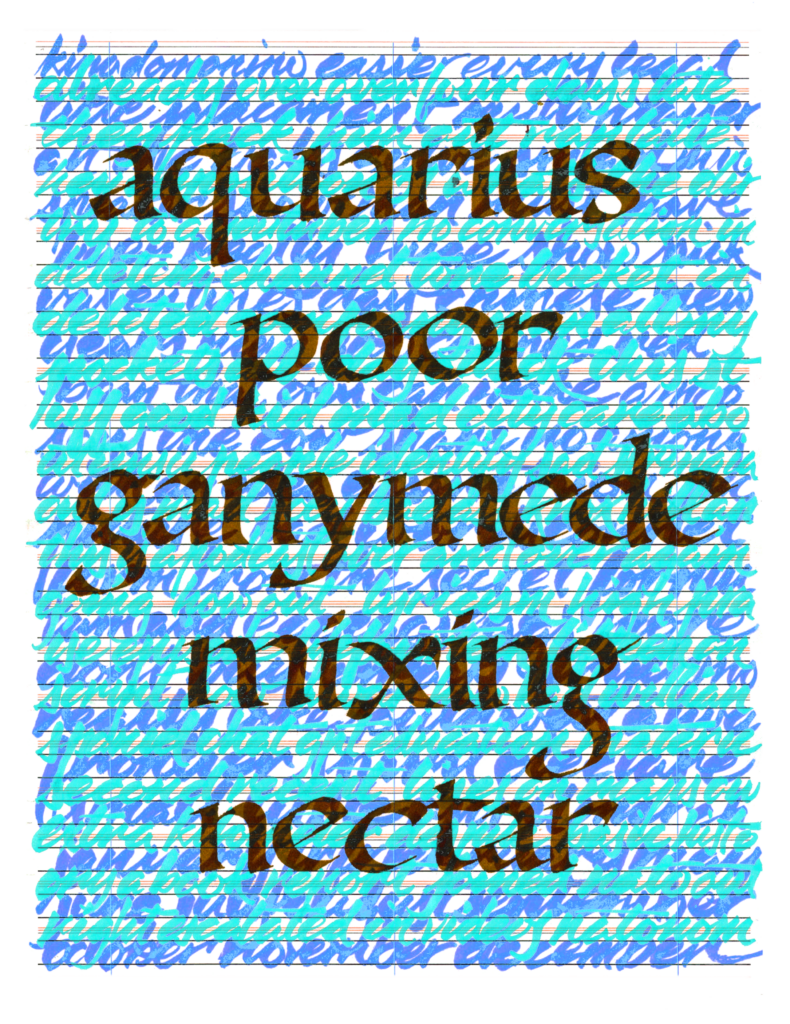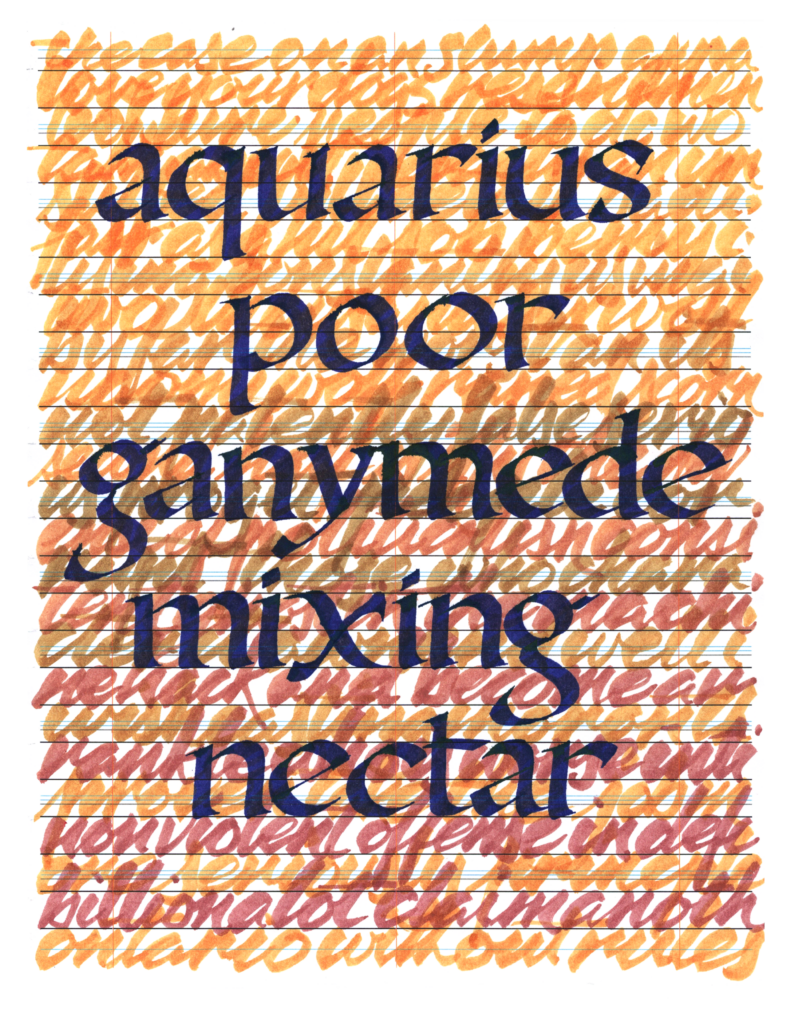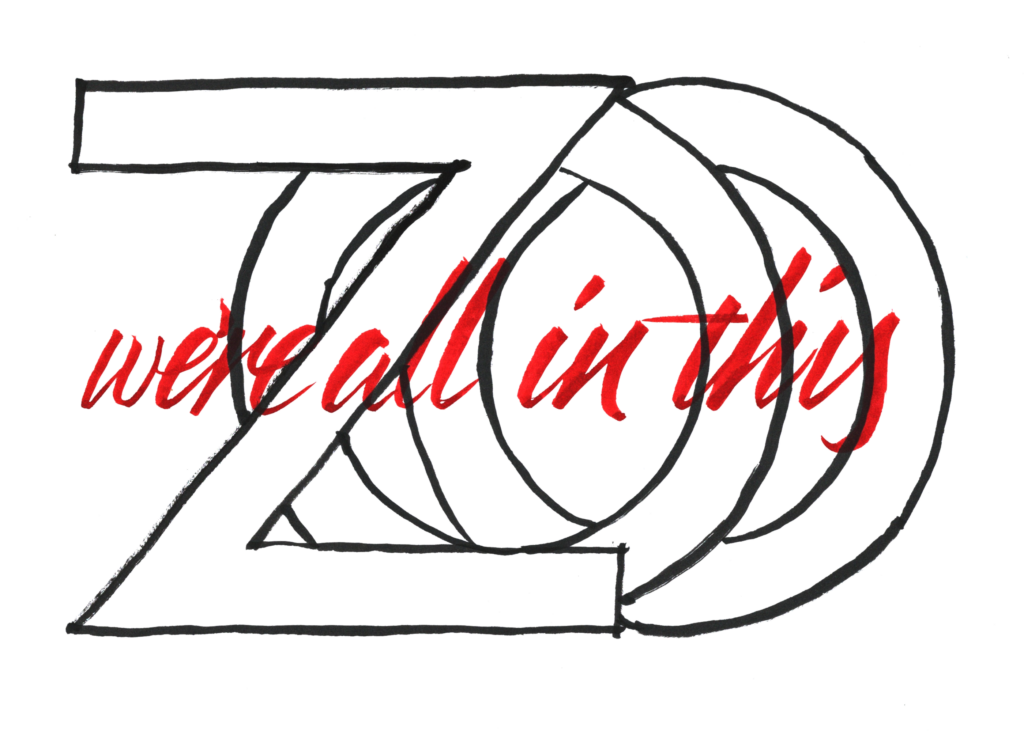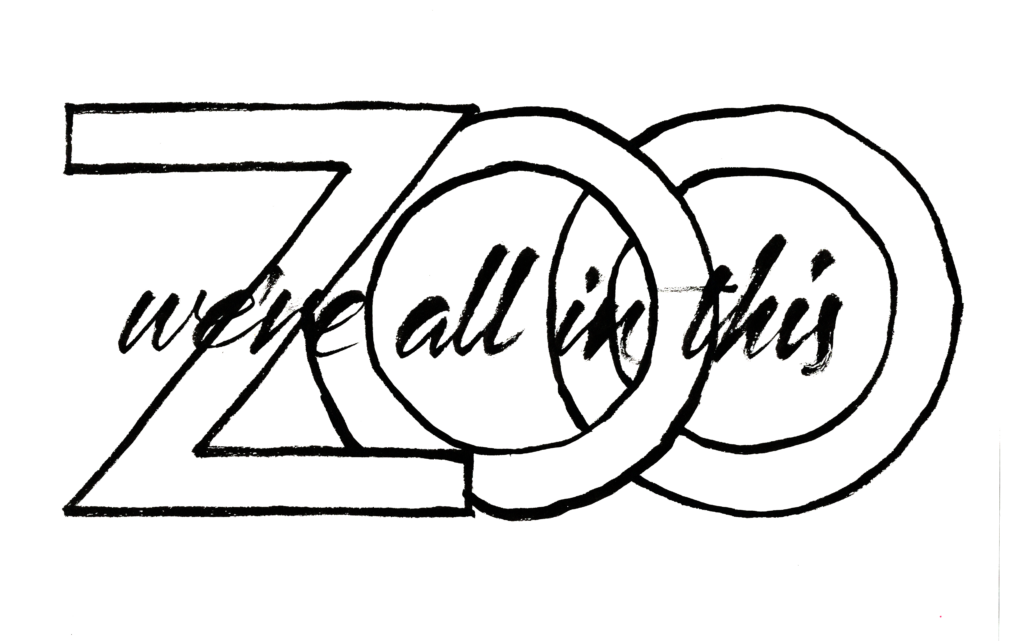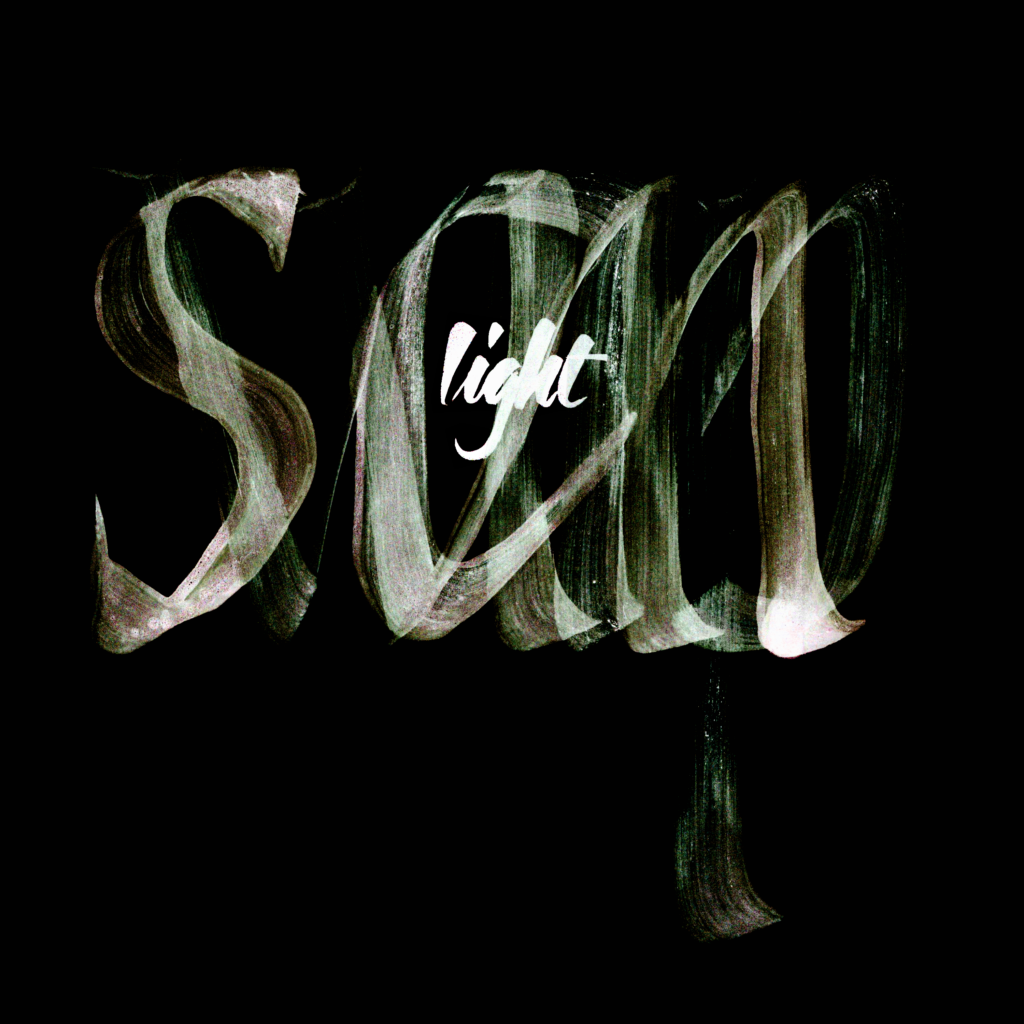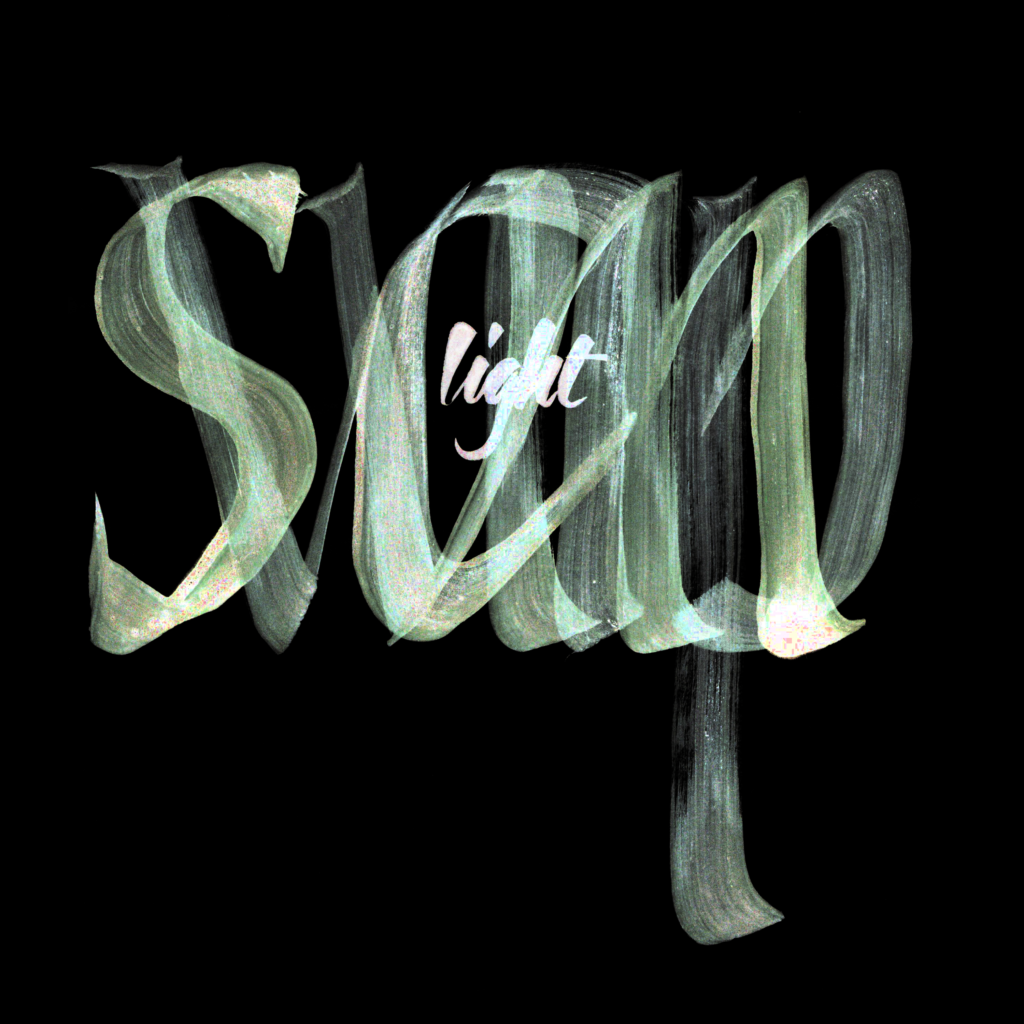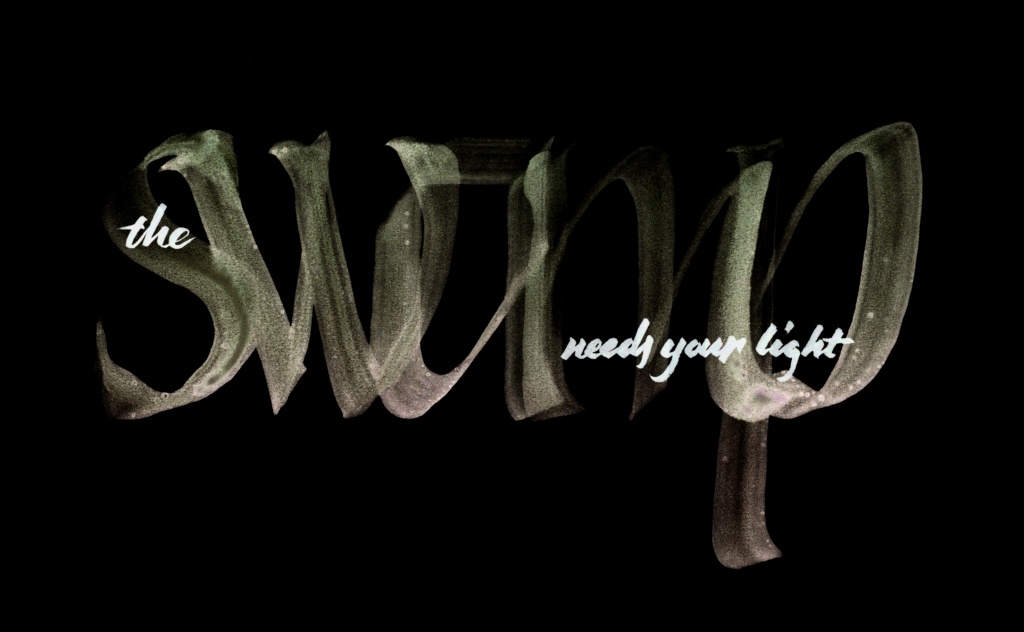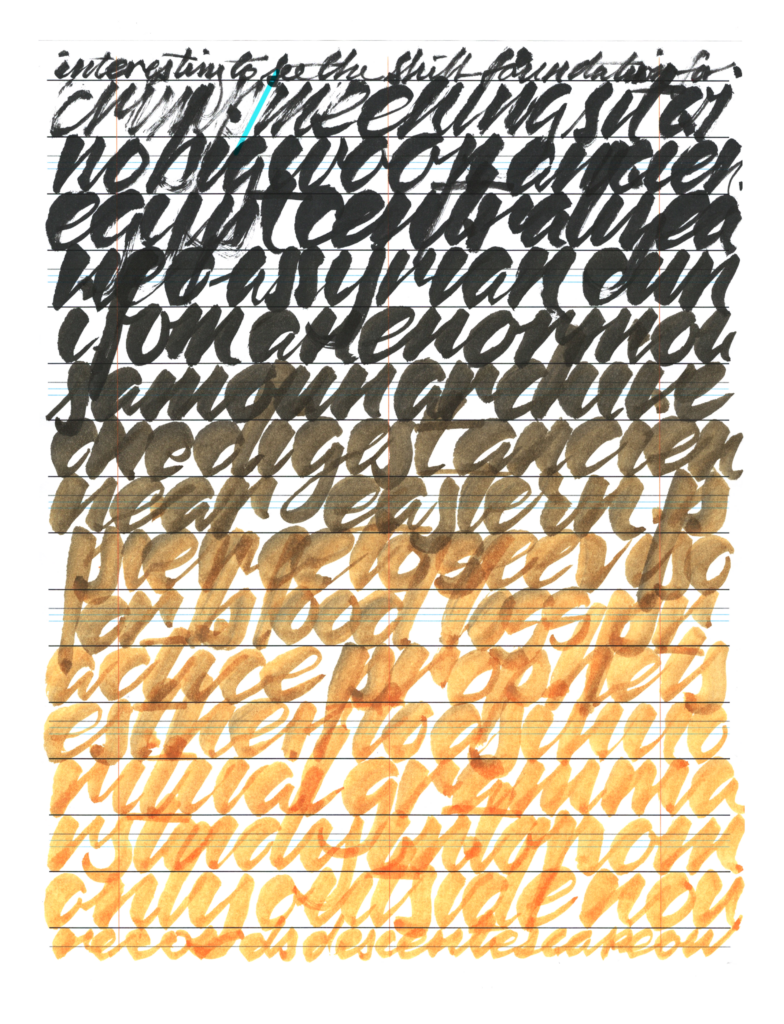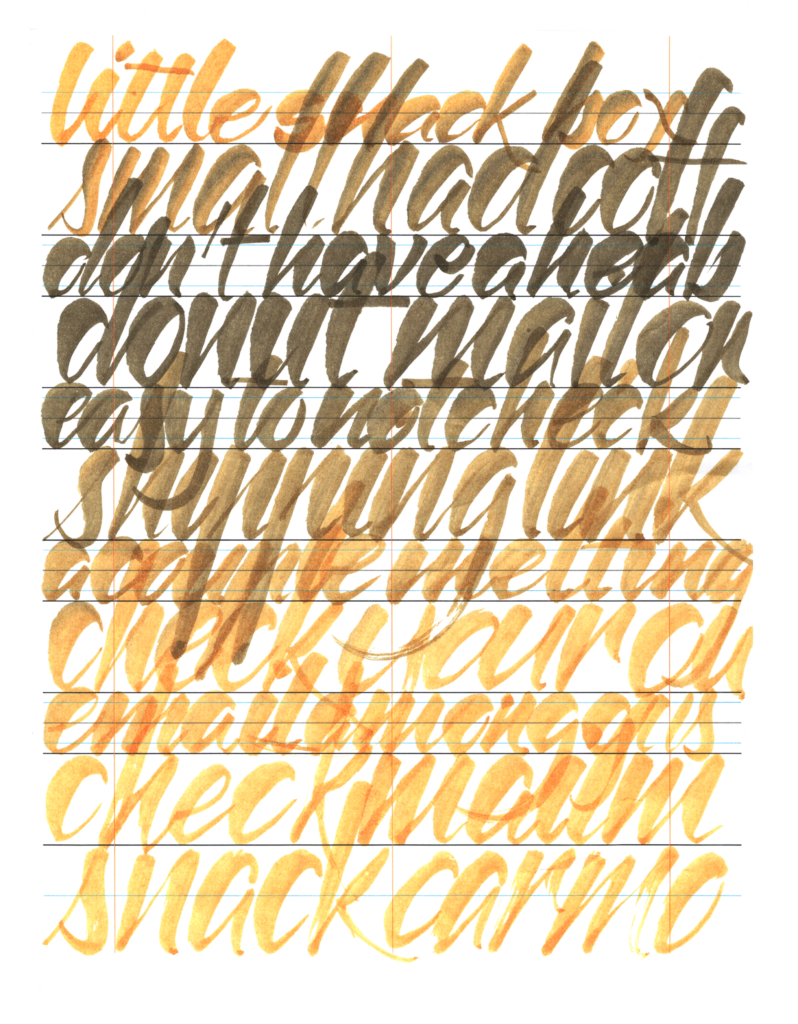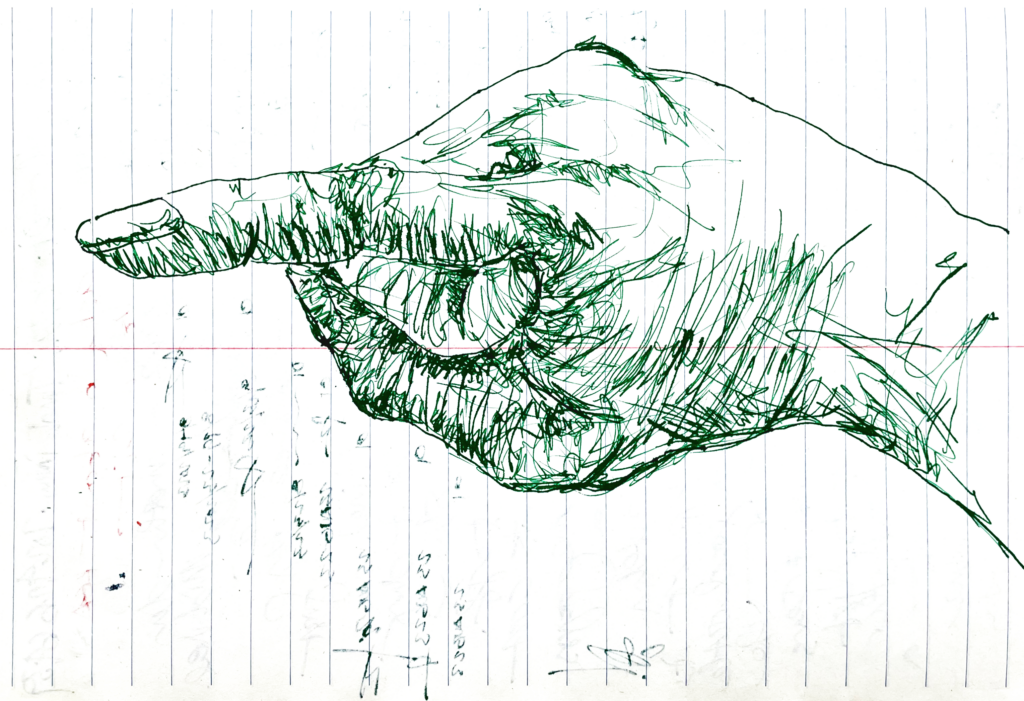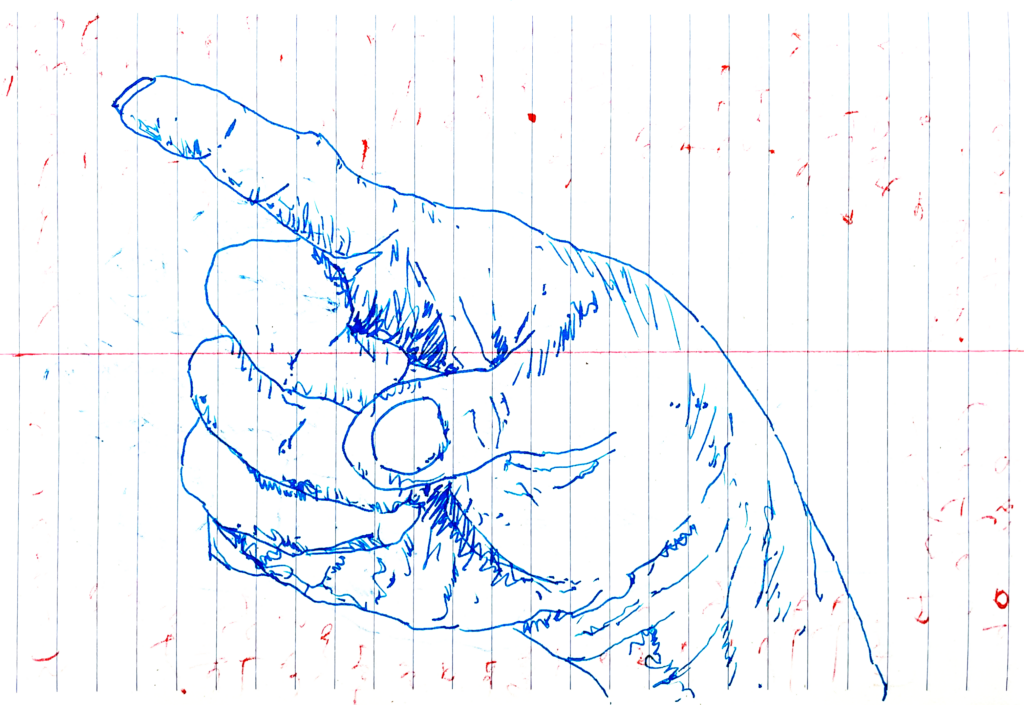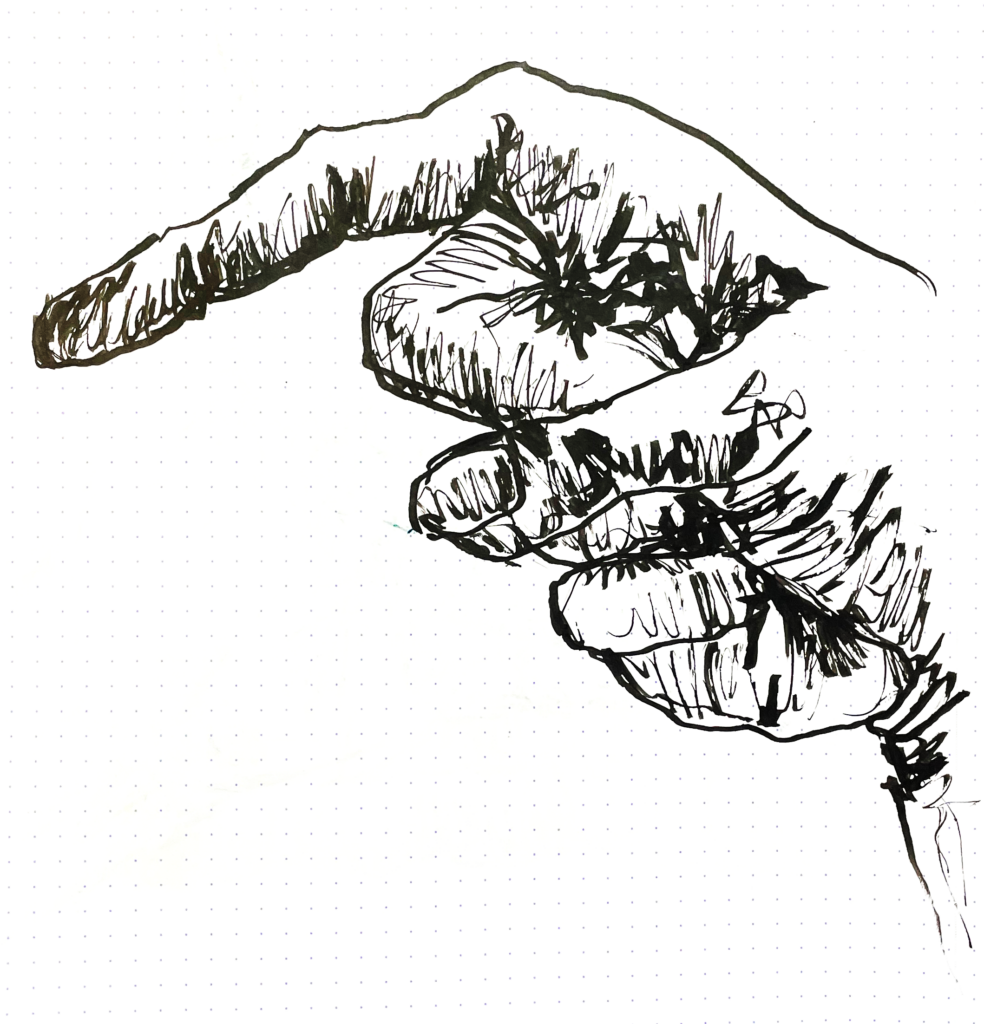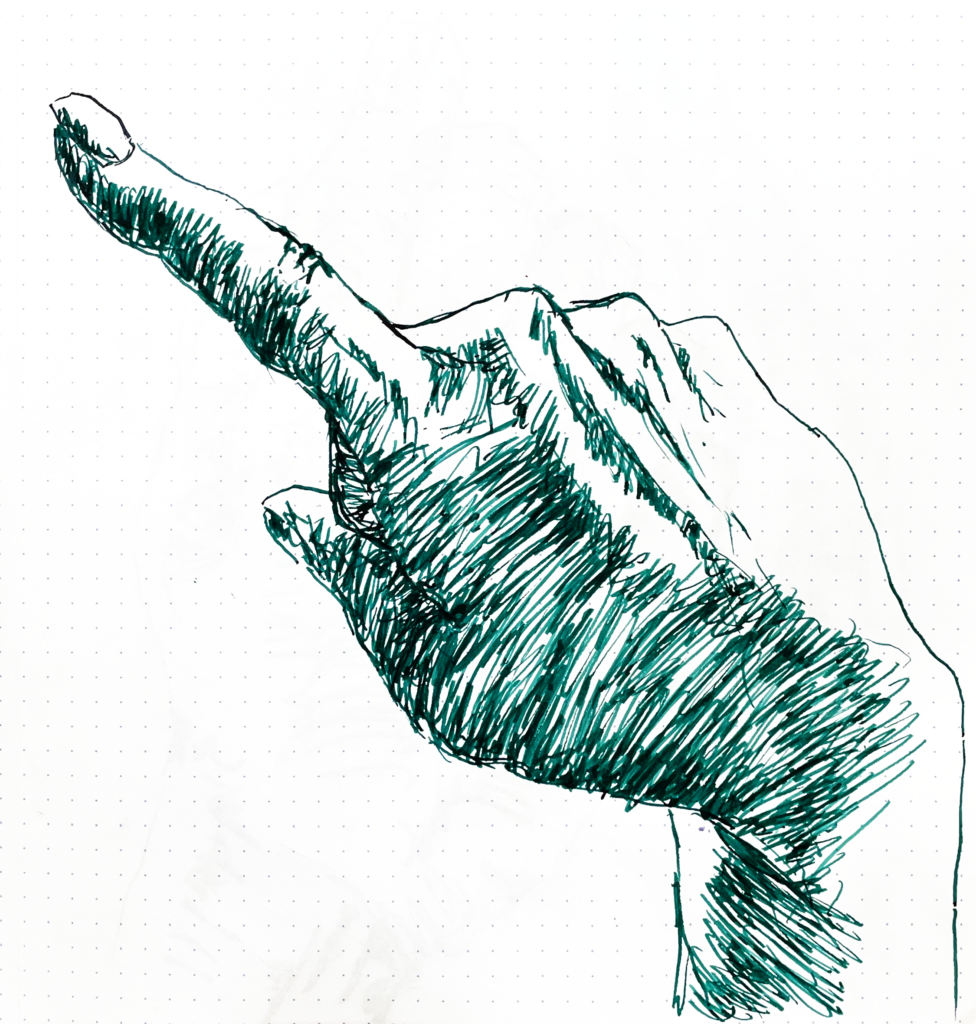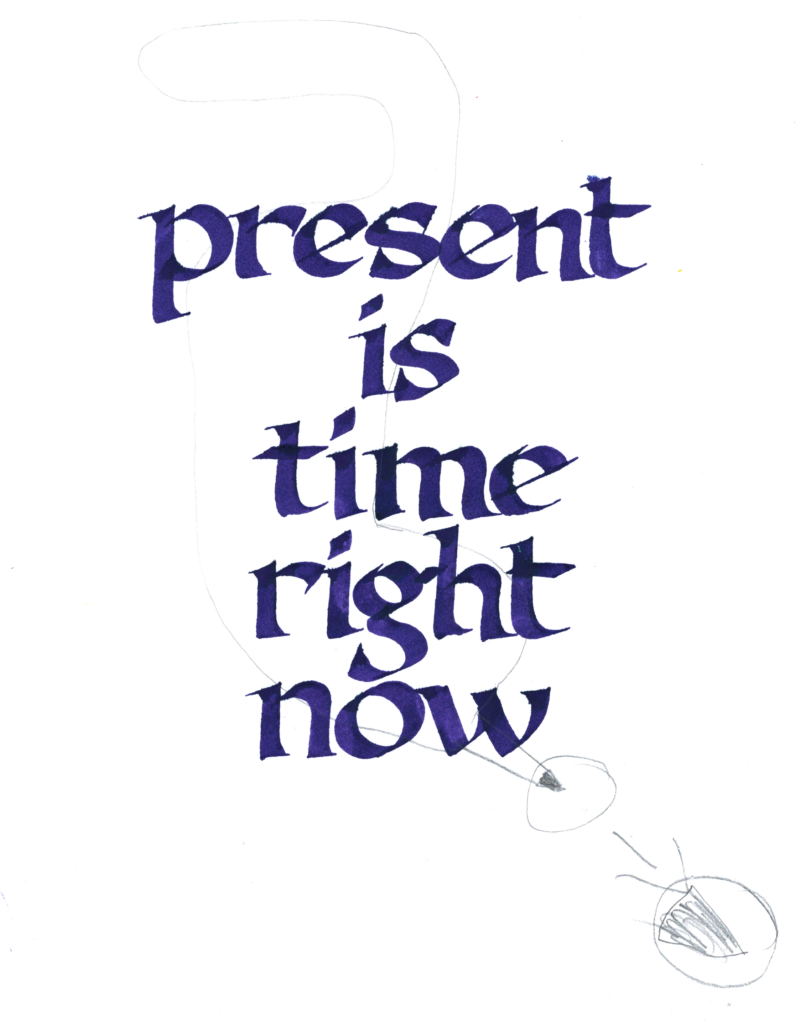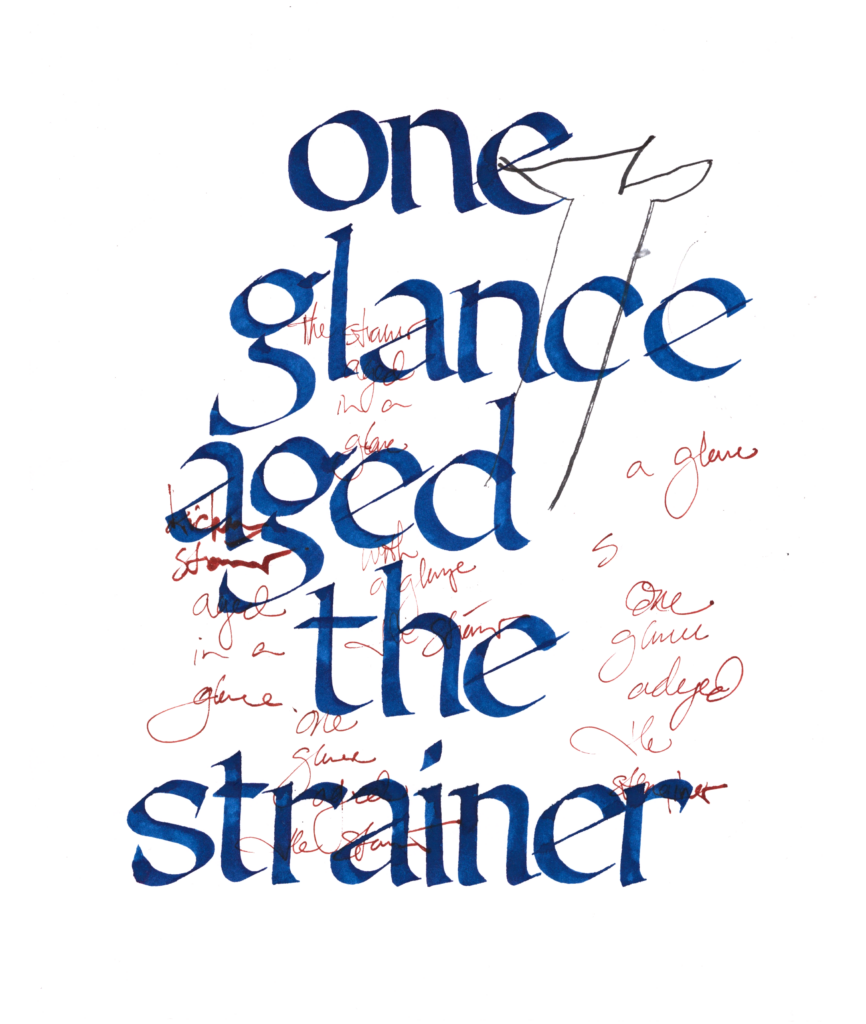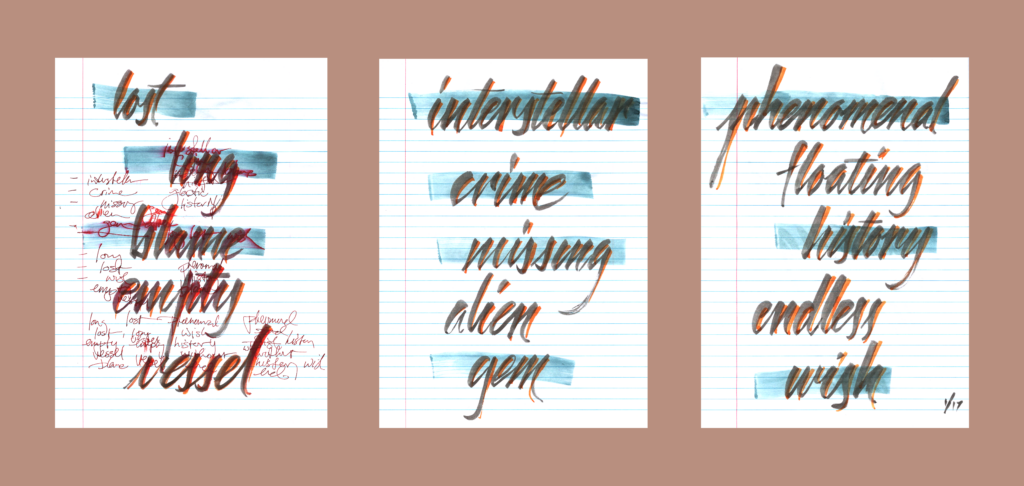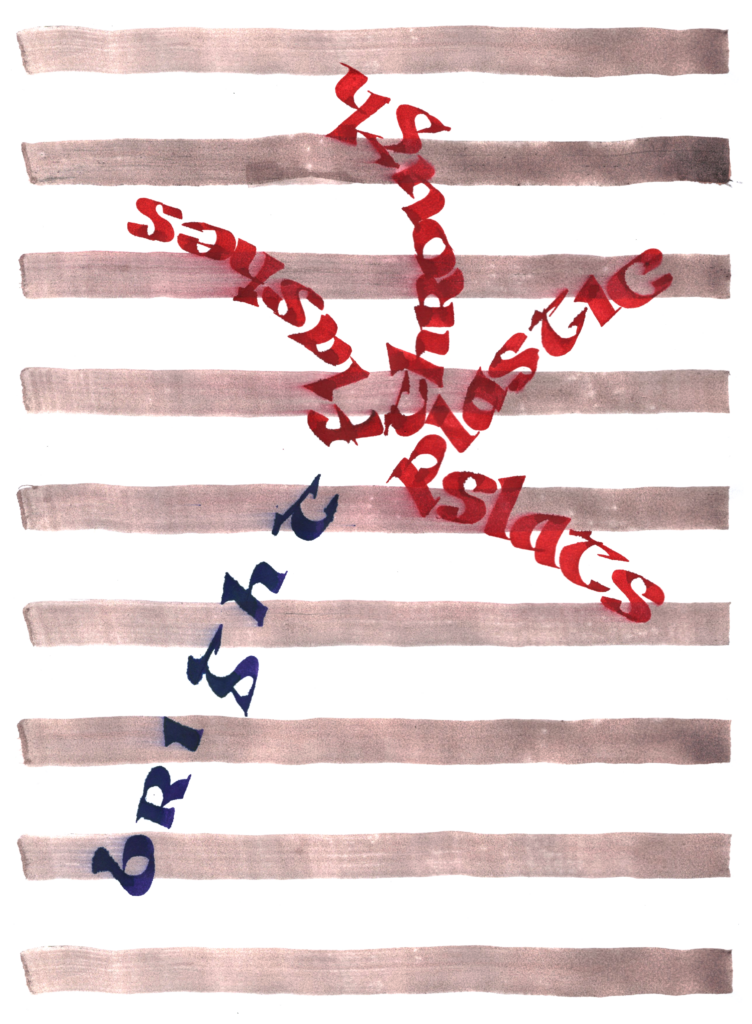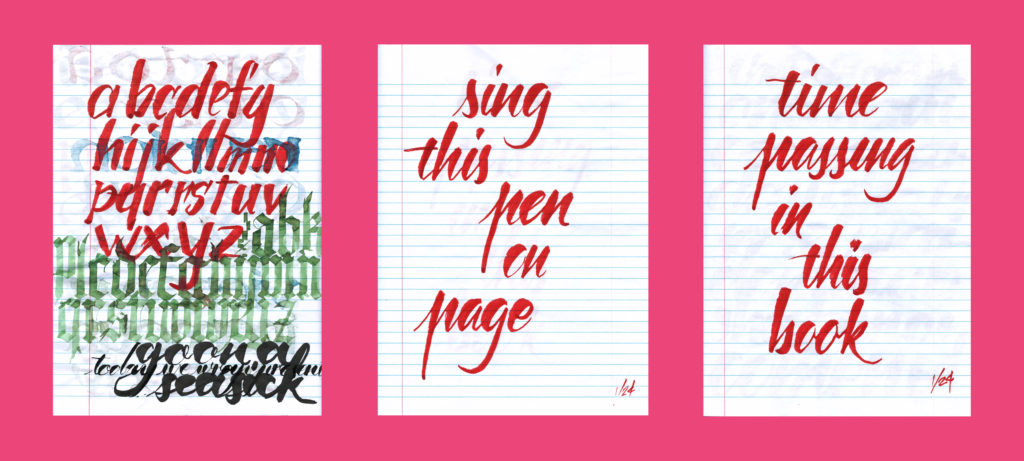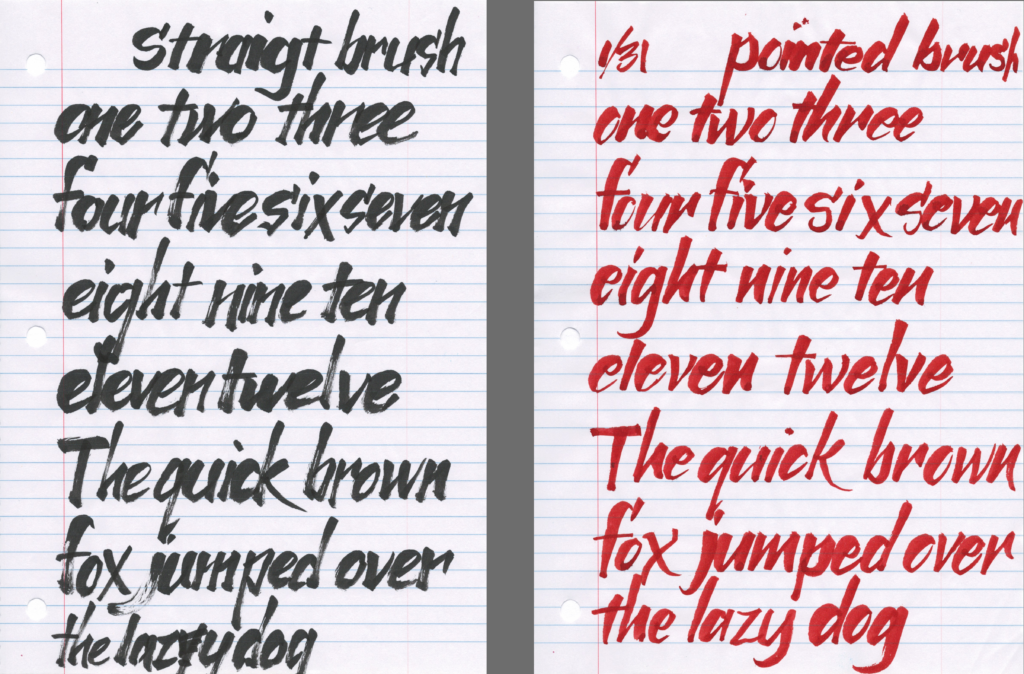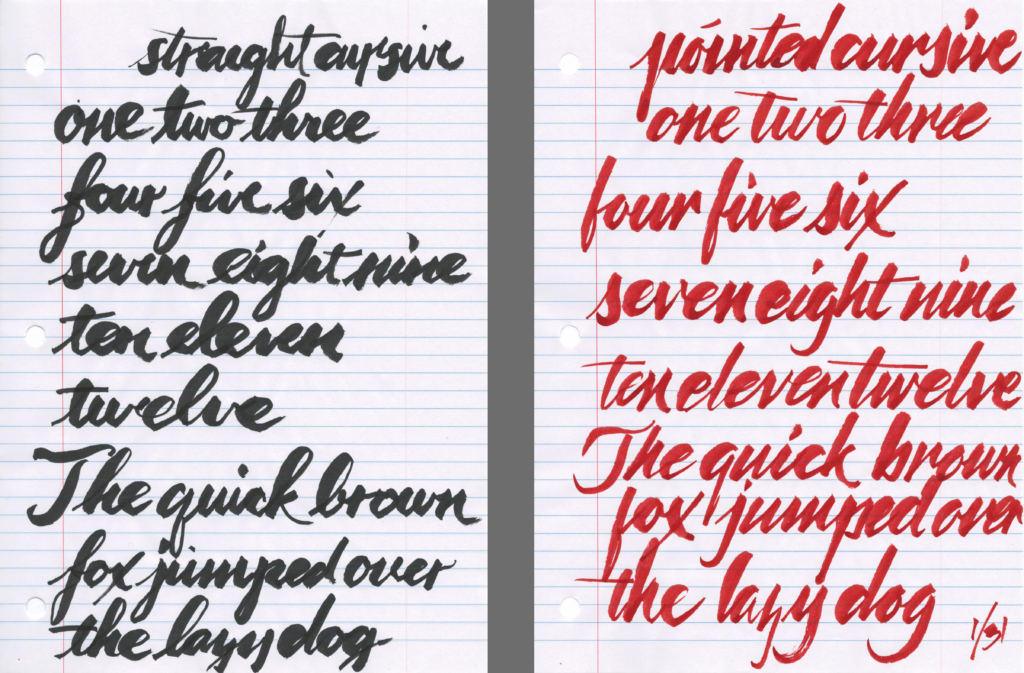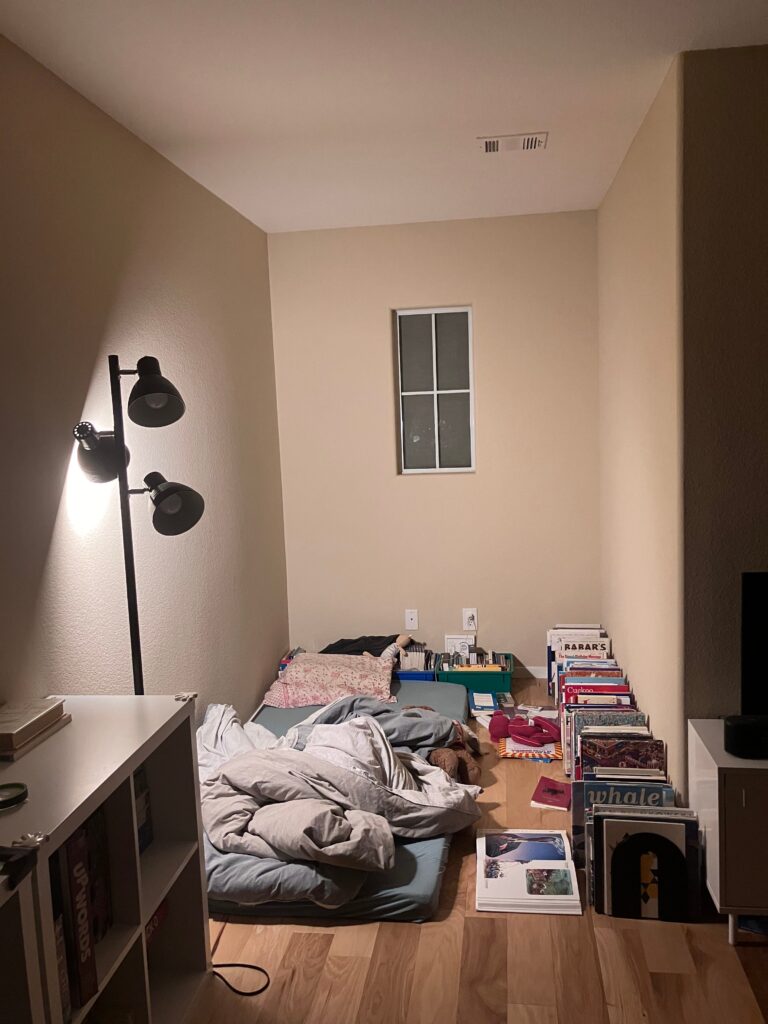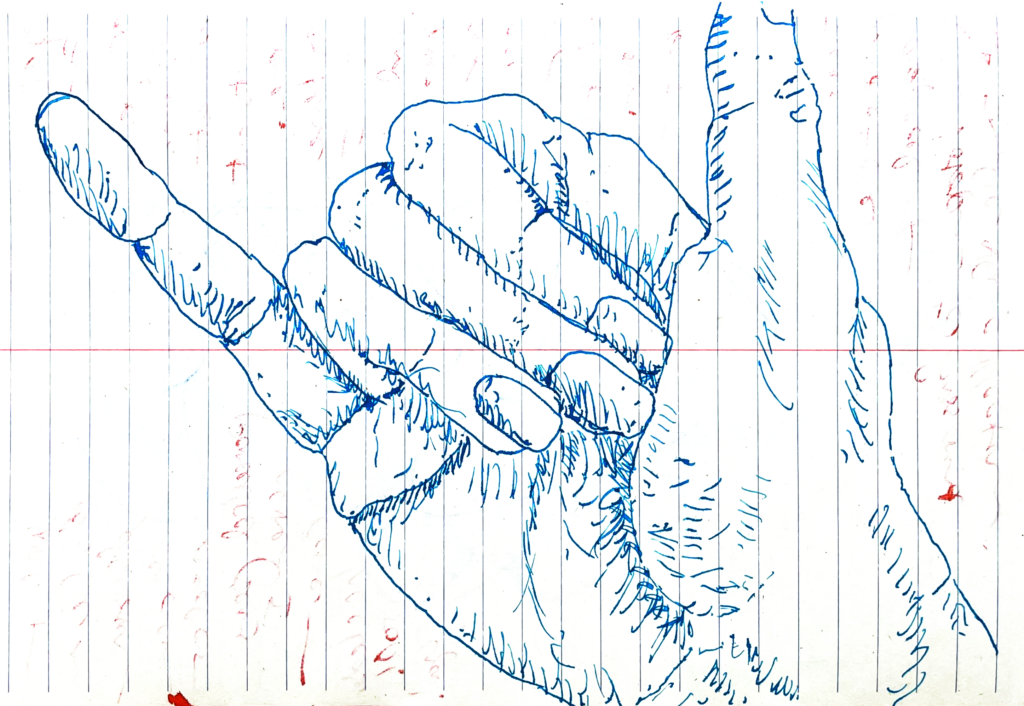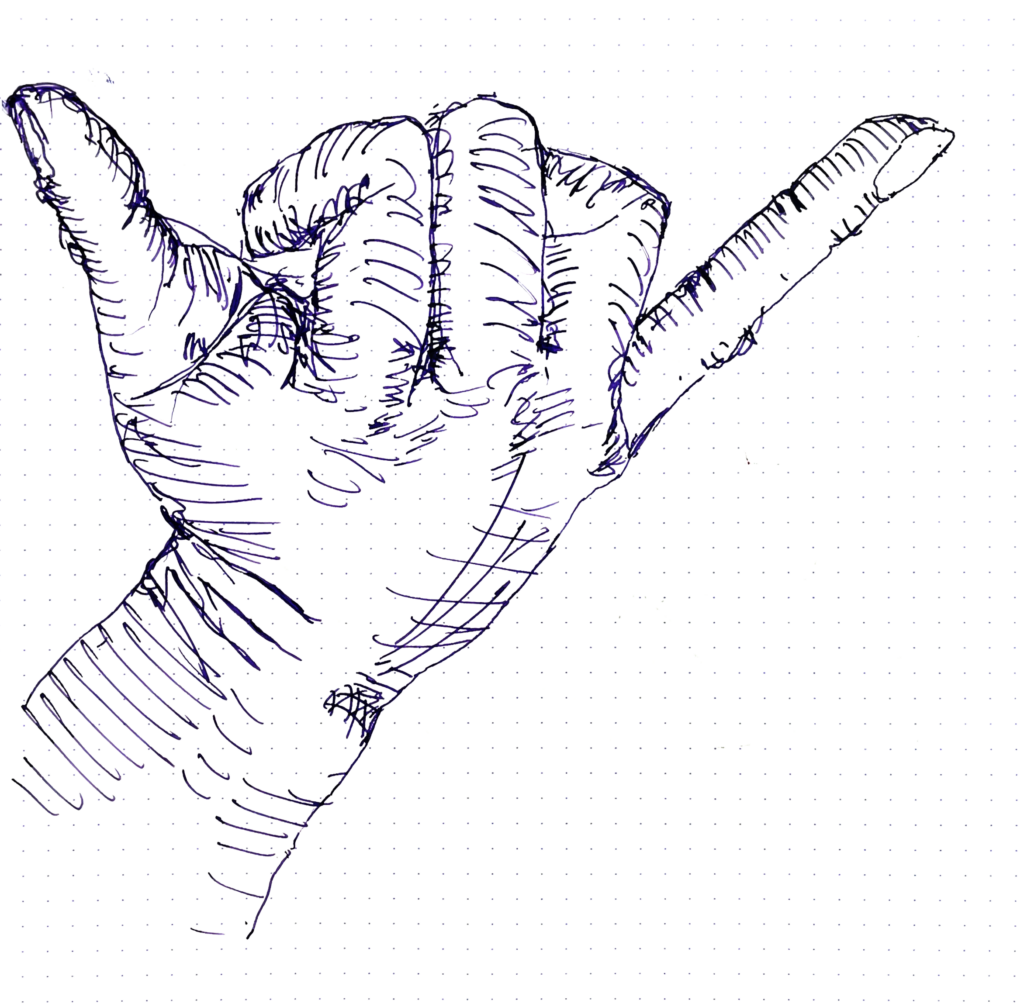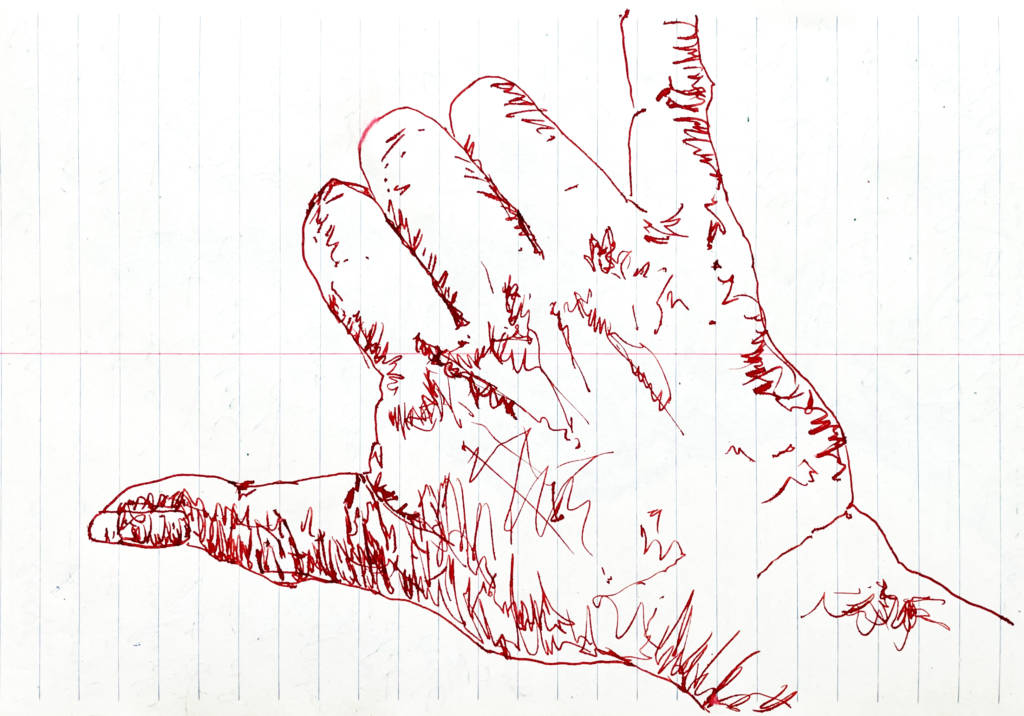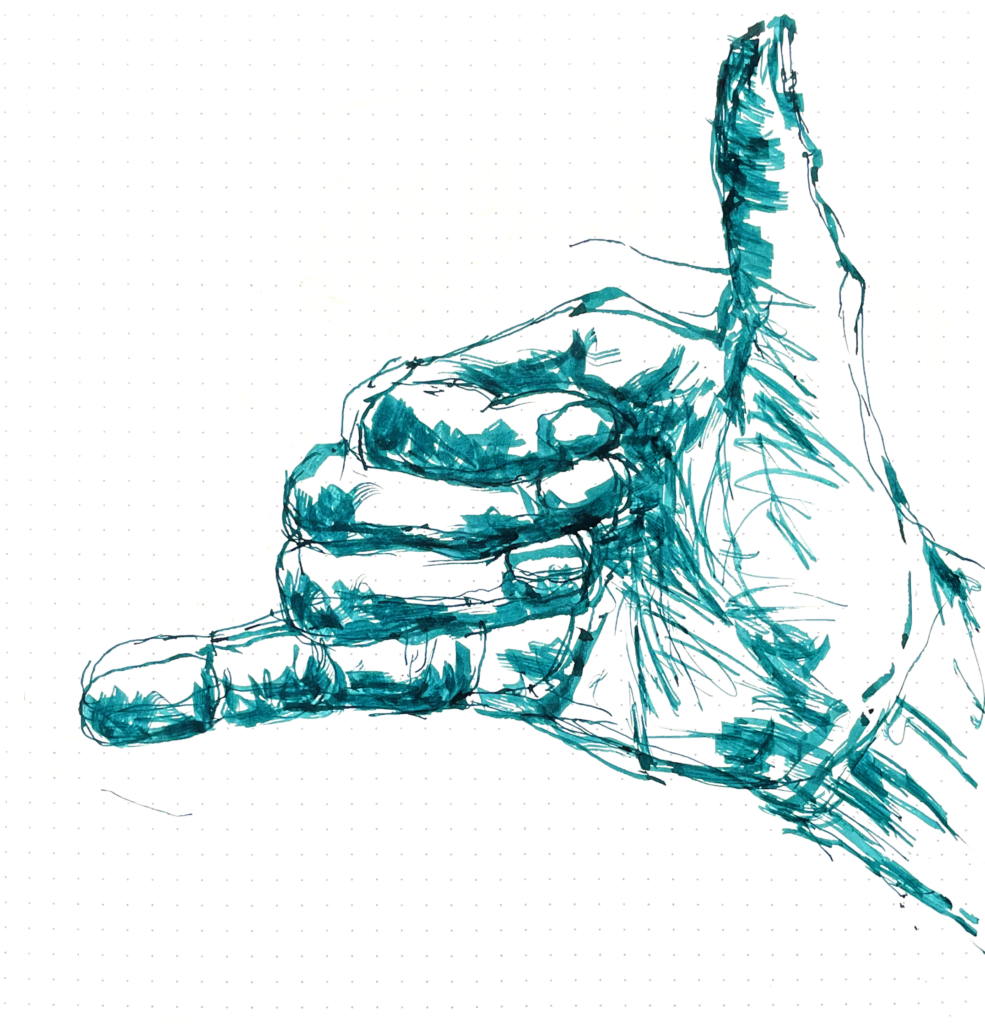My cursive in February hit an apex after a January of practice.
It was also when I finally gave up on the square format for whatever aspect ratio that the piece wanted.
,
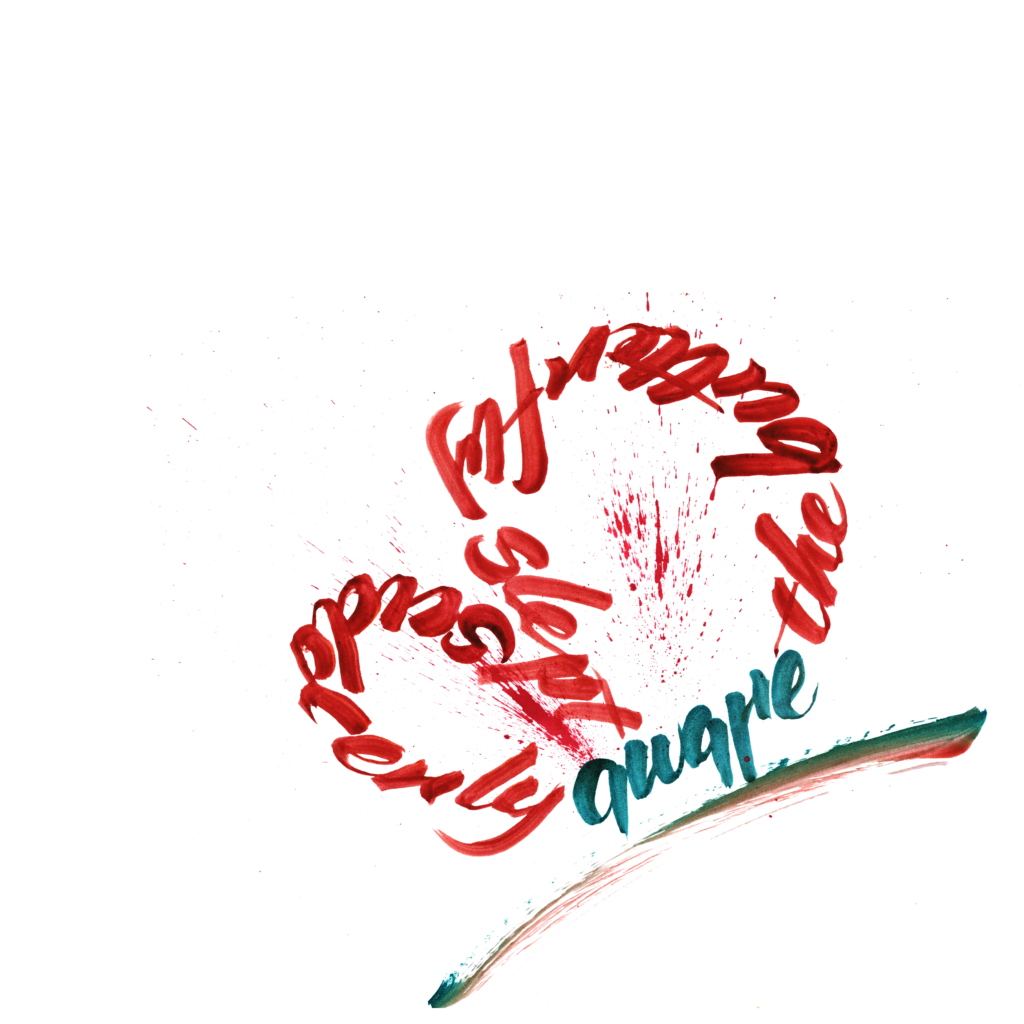
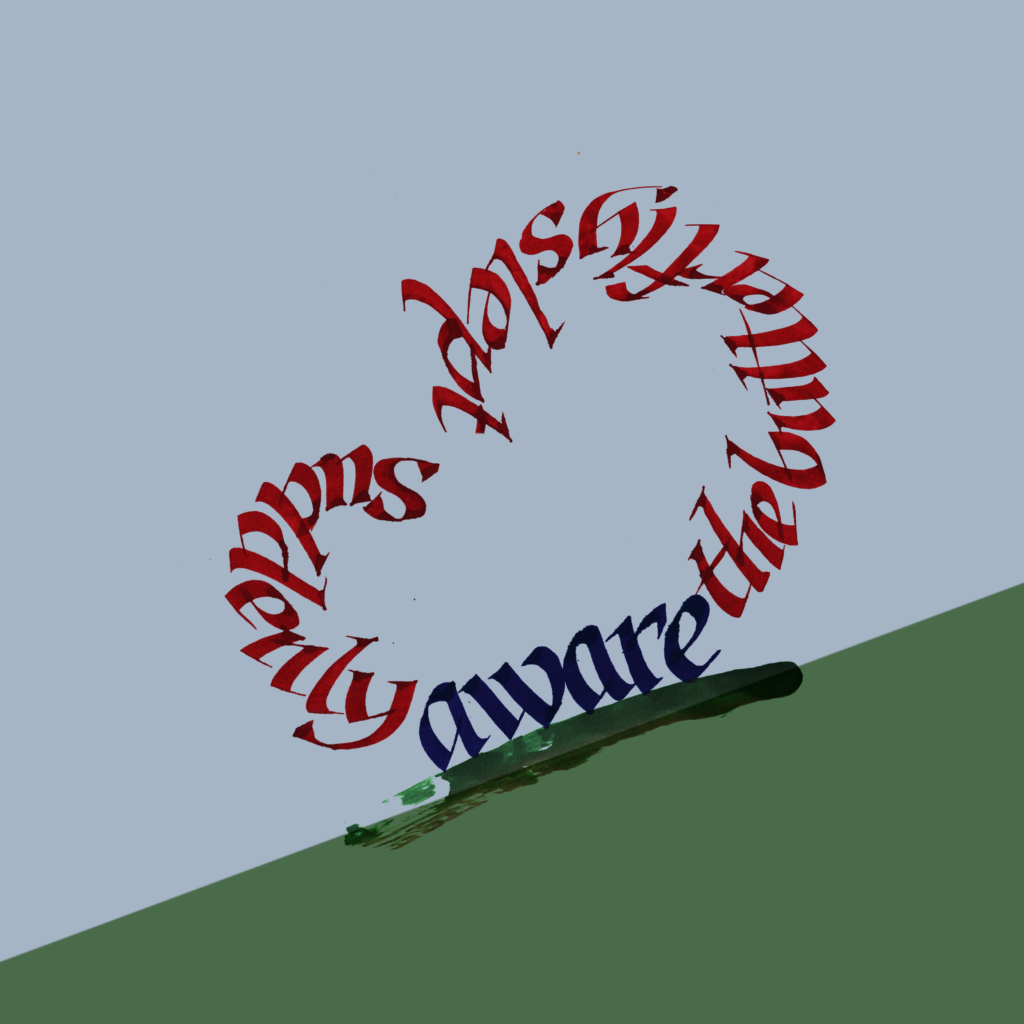
suddenly
aware
the
butterfly
slept
Almost three weeks into February Italics, I was getting a bit more confident with the script, while still playing with brush.
,
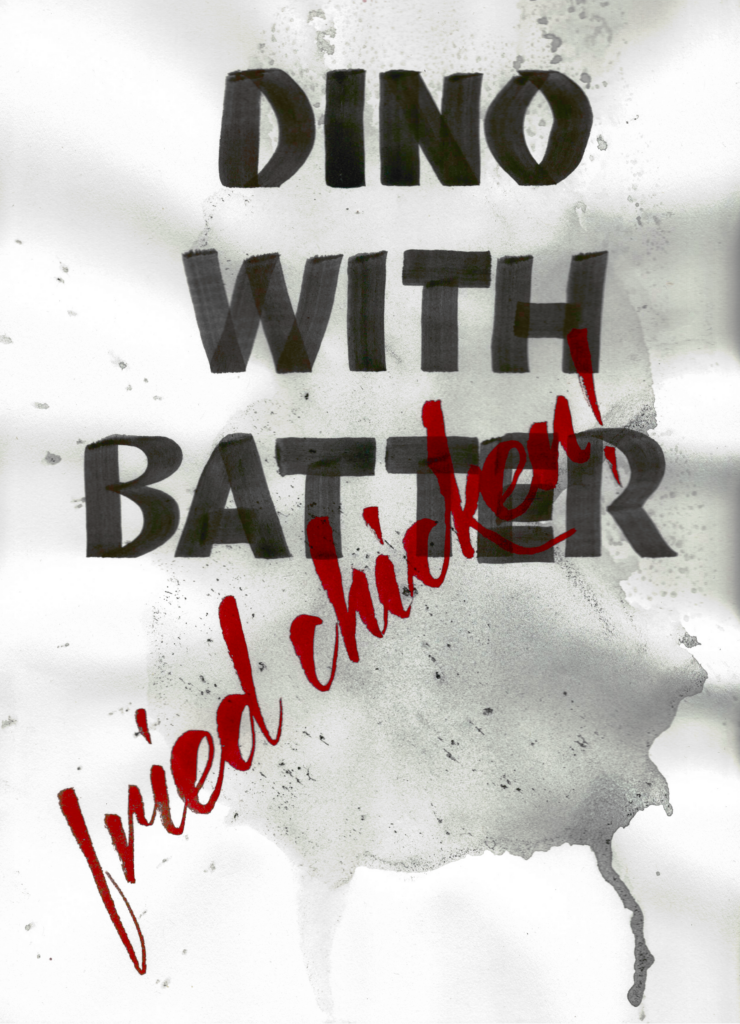
dino
with
batter
fried
chicken
One morning, I spilled a bottle of ink wash. My first move was to grab a sheet of paper to soak up the mess. Made for a great texture!
,
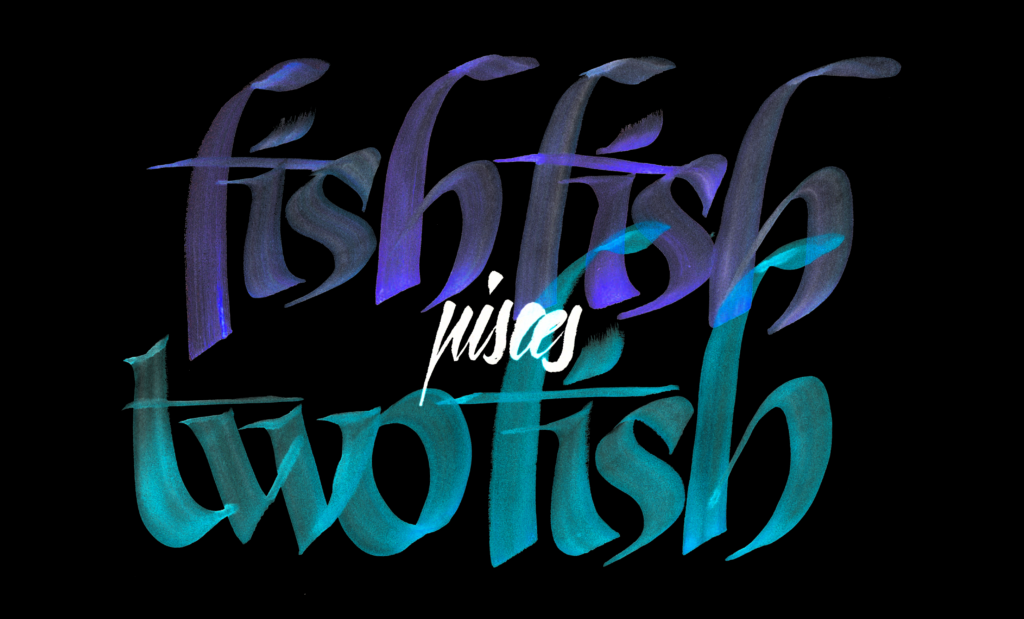
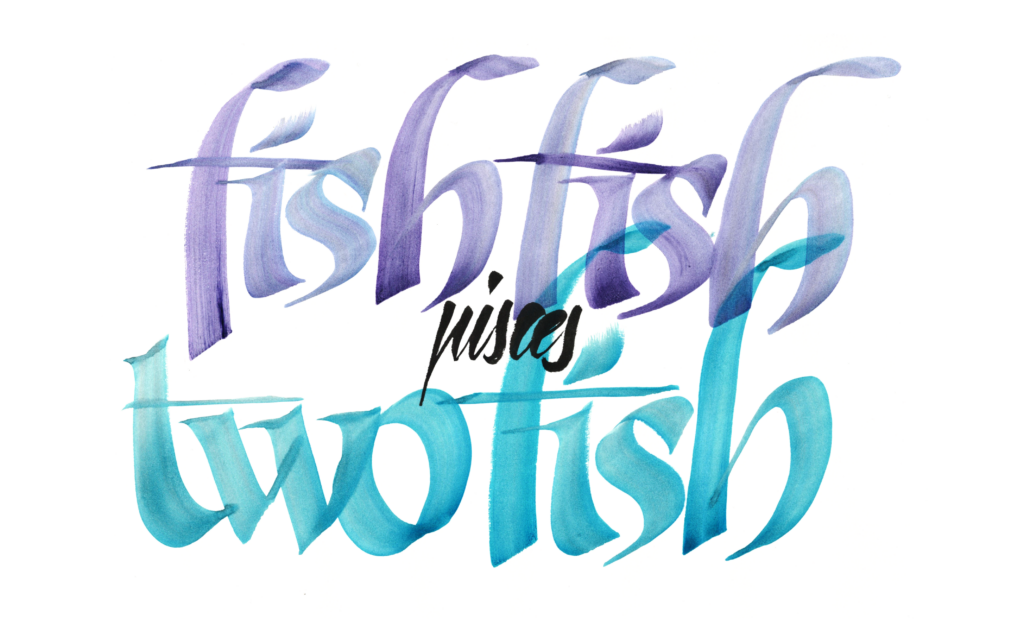
fish
fish
pisces
two
fish
GIMP has three different ways to invert a piece. In this option, the original colors were kept, except for white and black.
Inverting a piece absolutely feels like a cheat, but if it works, who am I to refuse the delights of the machine?
,
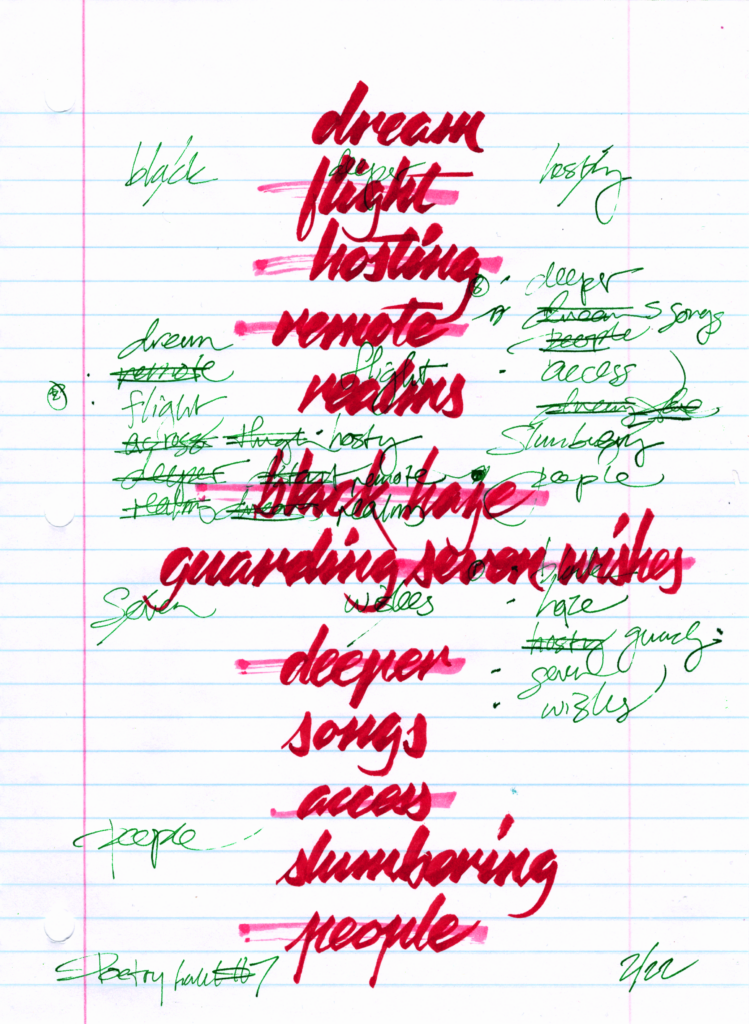
dream flight
hosting remote realms
black haze
guarding seven wishes
deeper songs
access slumbering people
I love the when a page shows layers of partial stanzas frozen in messy process.
,
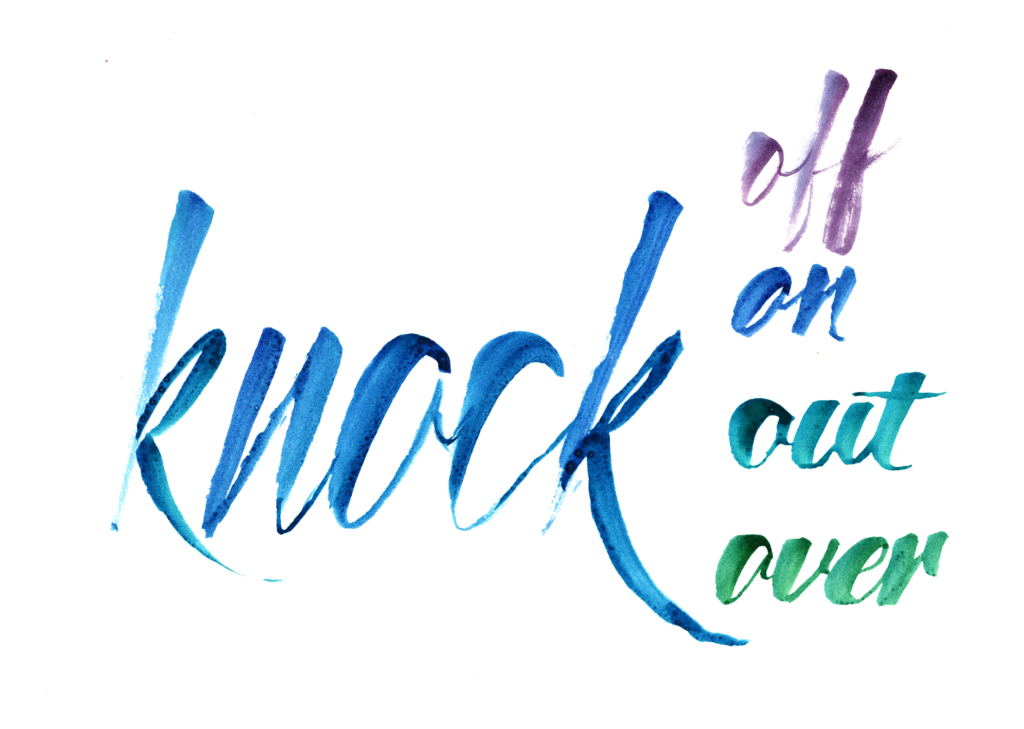
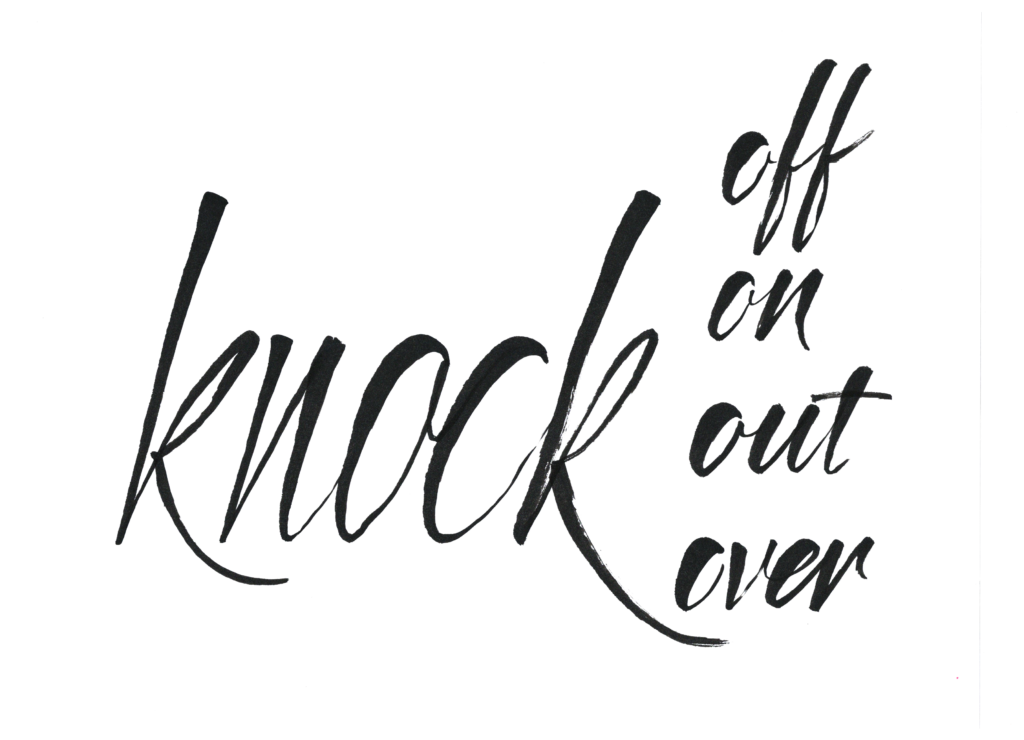
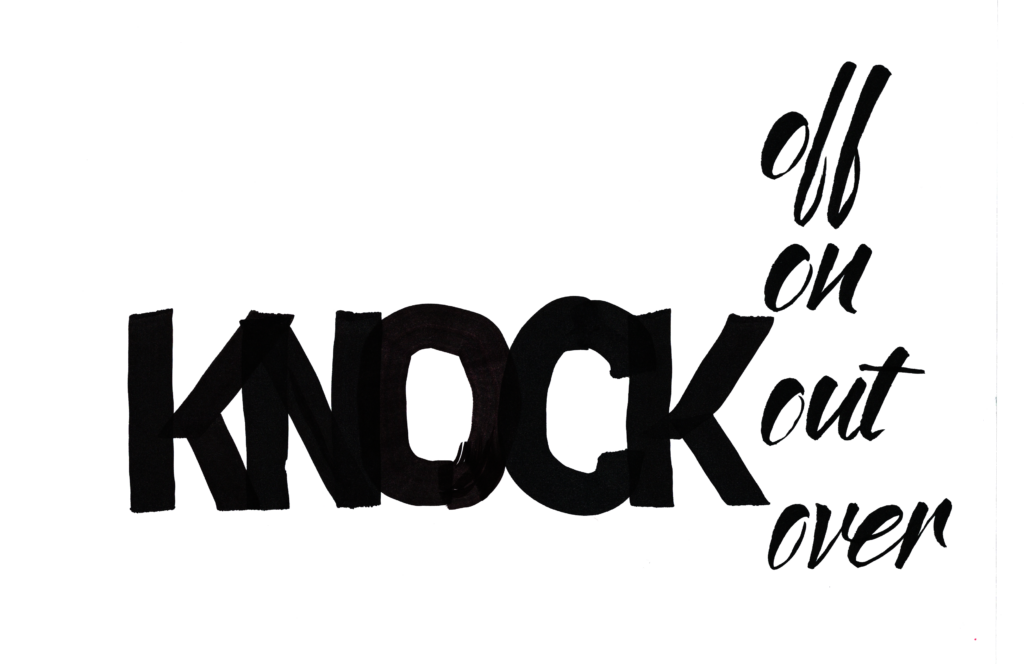
off
on
knock out
over
I am super comfortable with the Pentel brush pen, but have not found a straight brush that feels right for calligraphy. Trying to do so would be an expensive pursuit. Art gets really expensive when you forsake satisficing for maximizing.
,
I can’t believe we’re in mid-May. How does a year fly? I need to internalize the Cult of Done Manifesto and push things out faster.
Or maybe just enjoy the pace I got. It’s a balance when navigating internet hobbies, especially when work is super busy.
Cya next time!
,
PS—Fuck you and your family
During the pandemic, I took daily walks and found a black Honda Pilot plastered with obnoxious bumper stickers and window decals—stick figures in various poses, a few f-bombs, and this window decal.
This was the only one that was remotely amusing.
I get a kick out of other families’ windshield representation of themselves. The basic stick figure trope as well as Disney, Star Wars, football, and this version cursing at everybody.
I’m not impressed with crudity for its own sake. Curses lose their sting when used wantonly, but this window decal was playful.
Subverting expectations is too highfalutin’ a descriptor, but at least it had something beyond the other gas station bathroom humor on that car. The occasional zag against the mainstream can land, even if being a dick just makes you a dick.
,
PPS—Waiting for emails
The start of the school year was rough. The school district’s distance learning program was totally overwhelmed with new enrollees in Fall 2021 due to the sudden rise of the Delta variant.
Even though we had been enrolled for a months, this fresh turmoil meant we did not receive any information. So we headed into the first day of school not knowing her teacher, when we should meet, etc.
At least we picked up a Chromebook and some textbooks earlier in summer.
This wait was a special sort of torture, hitting refresh on my email every few minutes hoping to receive a missive from her new teacher. I even waded back into Facebook to check in on other parent’s frustrations. Misery loves company.
Then I would blame myself for the anxiety. Sure, it would be nice to start with a special sort of excitement. But who really cares if it day one is a whimper or a bang?
Soon enough, none of this anxiety would matter. She would hard at work with whichever teacher she got. Who cares if she misses out on a few days of second grade instruction? We’ll still be in here.
(Ultimately, it turned out to be a bigger mess than I feared. The first month was a wreck with a substitute trying to learn her way in the worst possible circumstances. Fortunately, the school district enticed a cadre of devoted teachers to tackle a second shift and our girl ended up learning in the evenings that year. It’s all an ancient memory as she heads into middle school).
In that moment, life reminded that in spite of our era of instant communication, we don’t always get what we want when we want it. Even if it felt necessary.
Character traits are earned by doing, so I guess I owe the gods some gratitude for this chance to practice patience.
.
PPPS-Practice
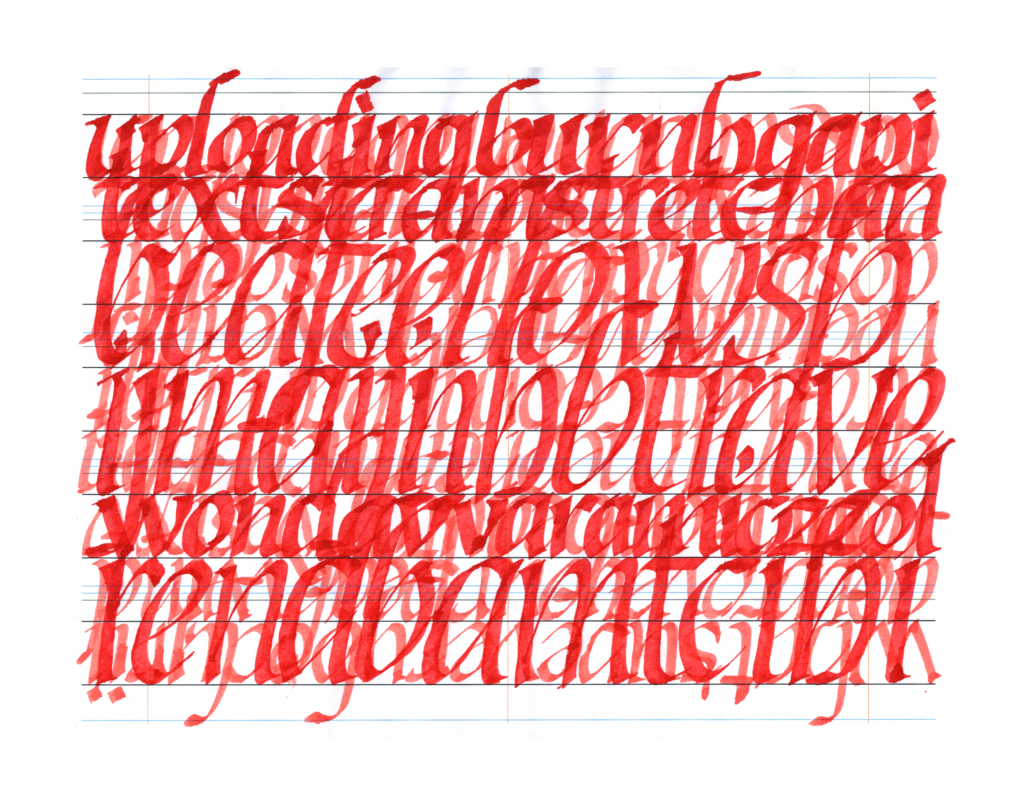
I started my daily practice with extra printed templates that I used on the lightbox. This was the last of these printouts before transitioning to binder paper. It’s much cheaper and they’re lined on both sides!
Then again, it was fun to be reminded about how I would maximize these sheets with layers in light colored ink—a habit that I’ve continued during my morning meditations.
One day I should try out cross-cursive.
.

